#
#
#
#
#
#
#
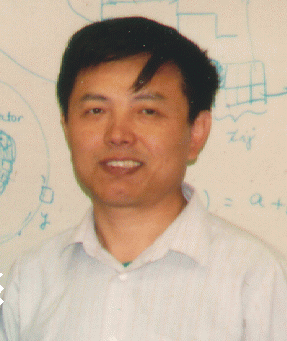
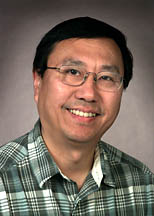
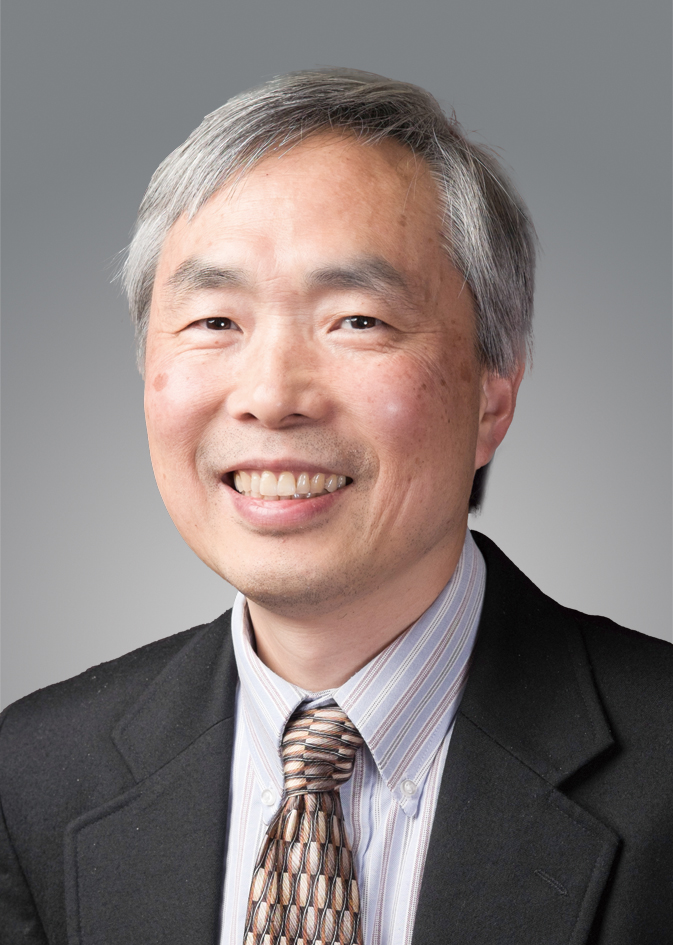
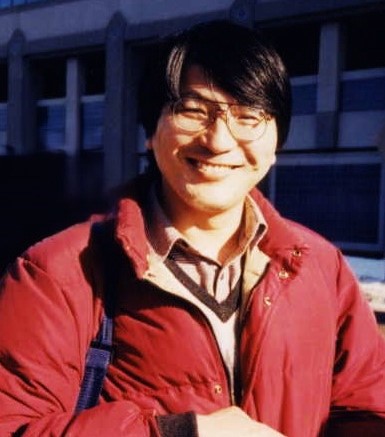
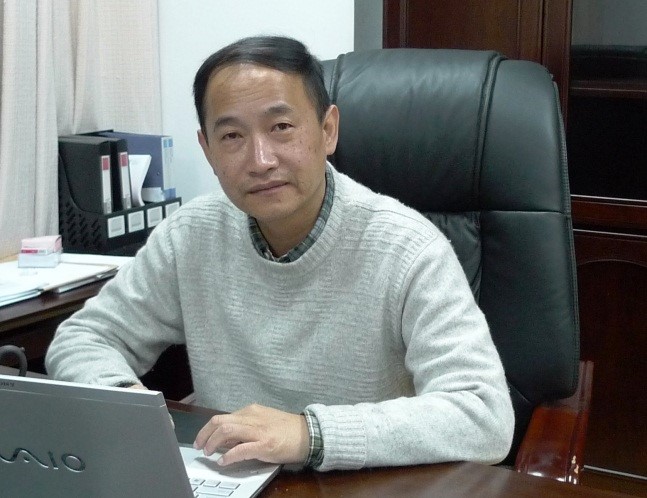
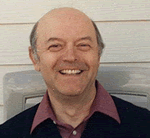
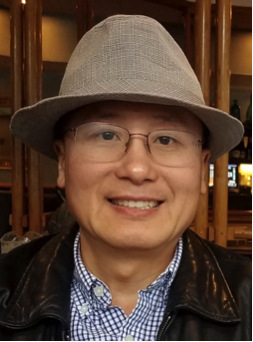
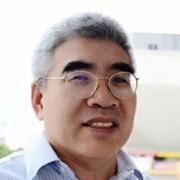
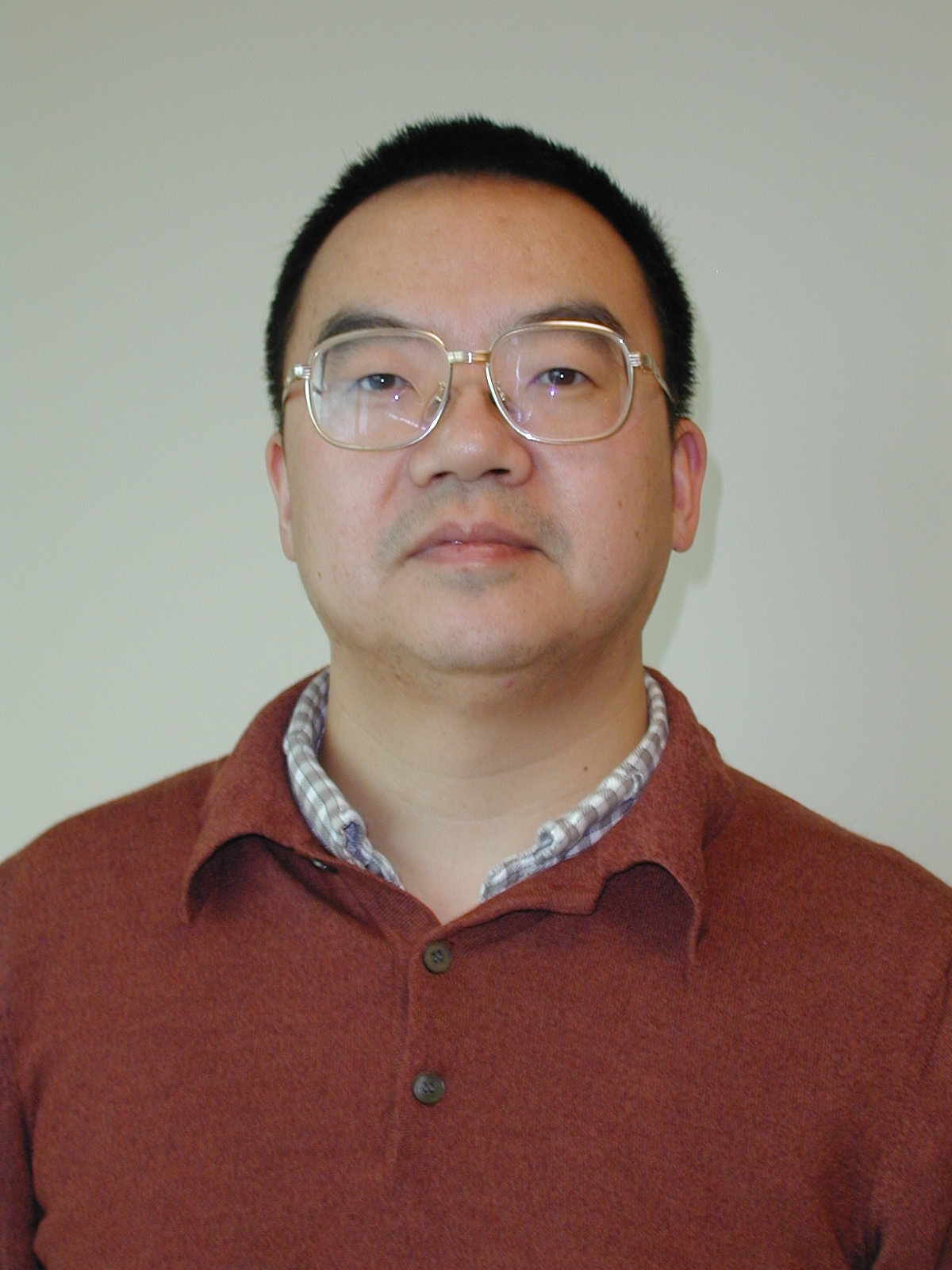
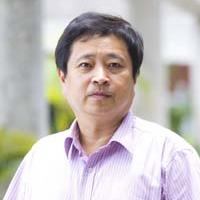
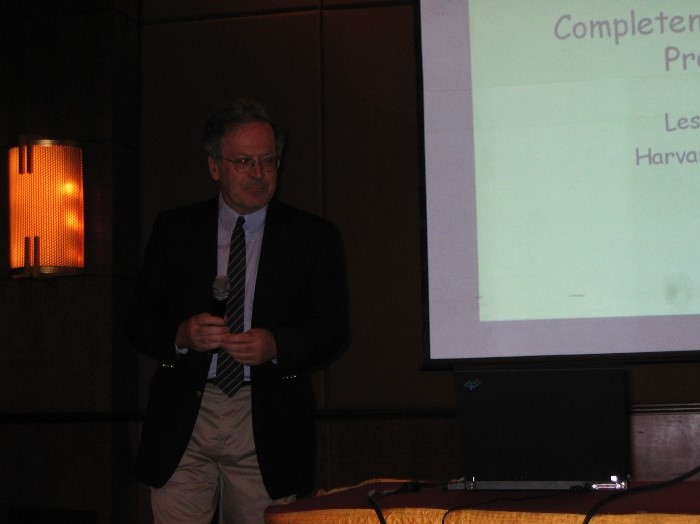
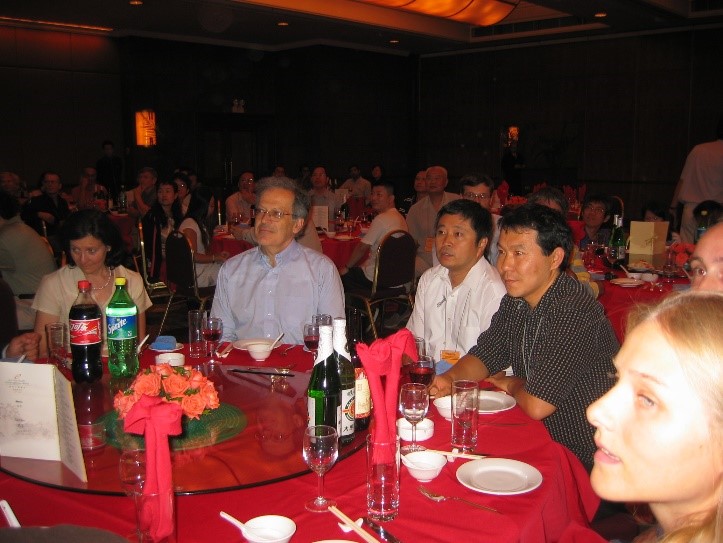
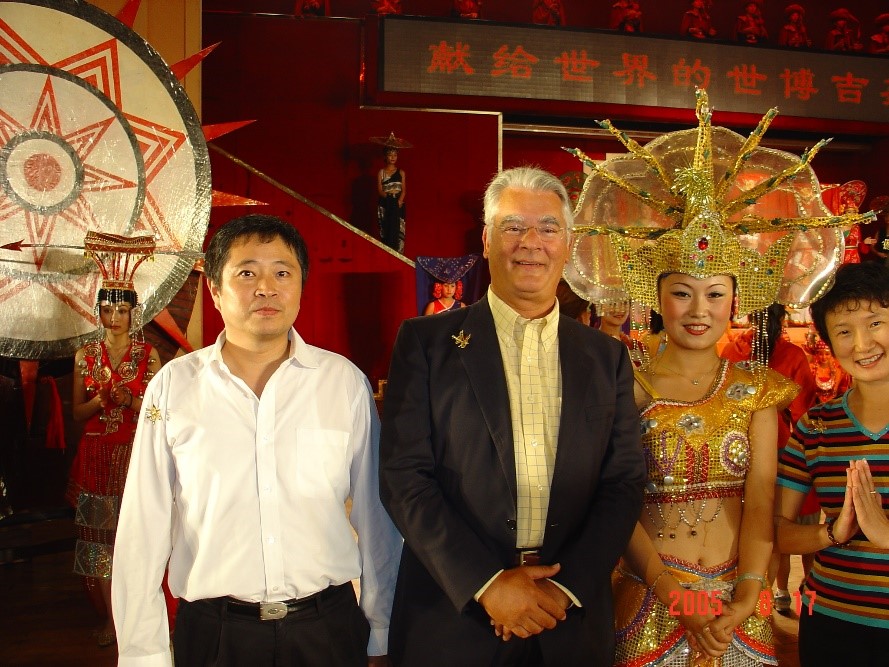
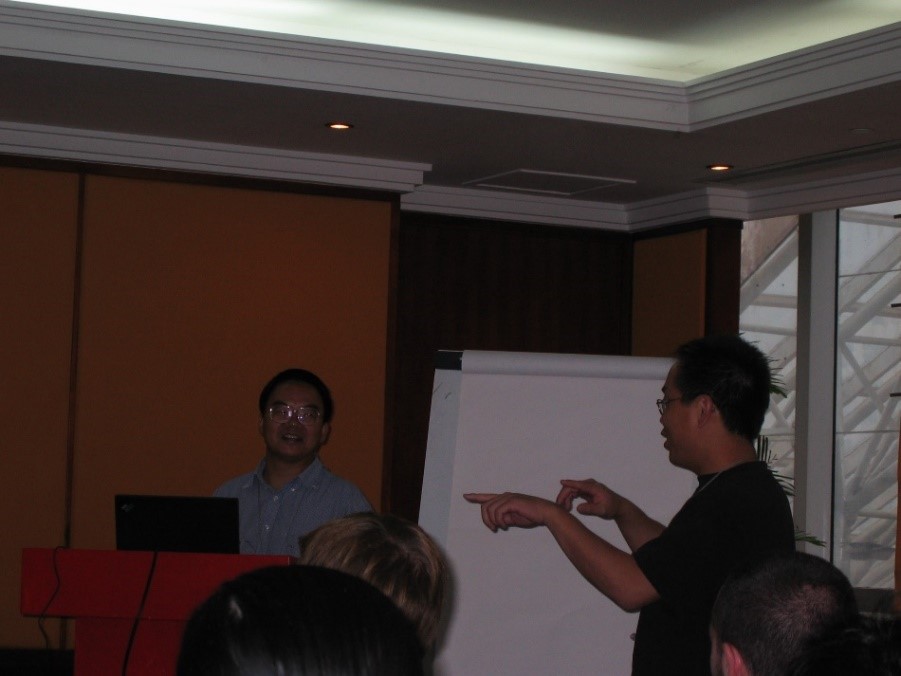
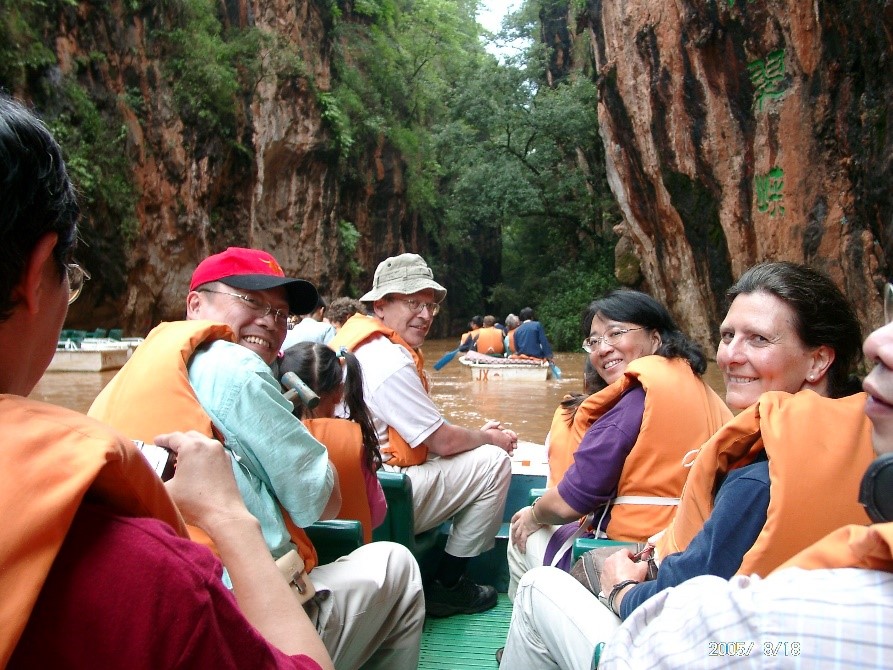
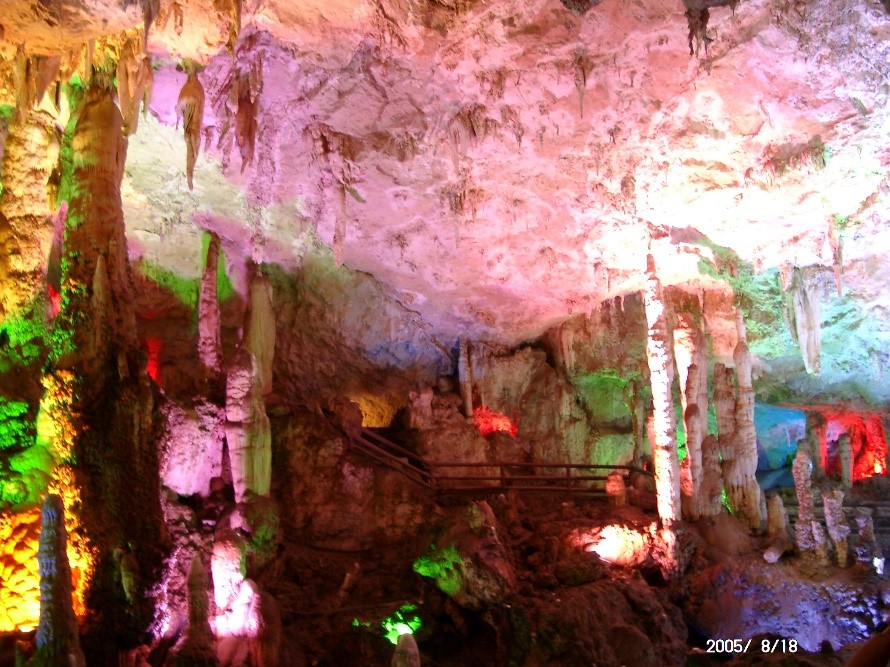
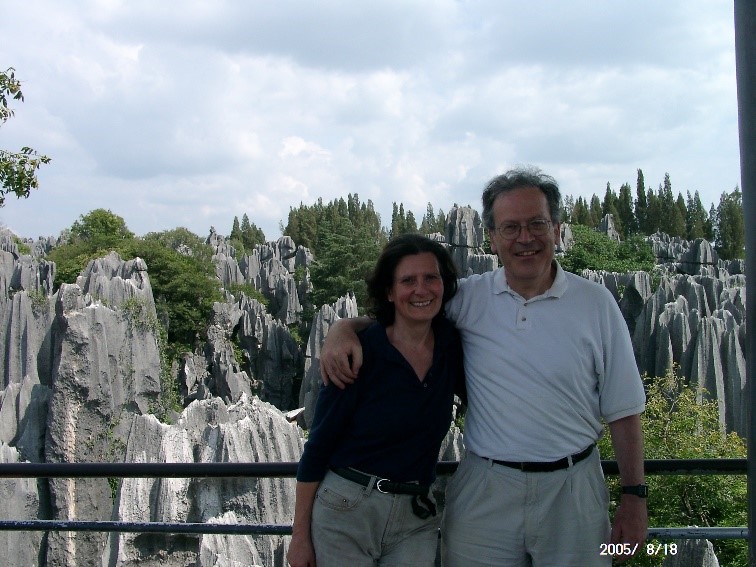
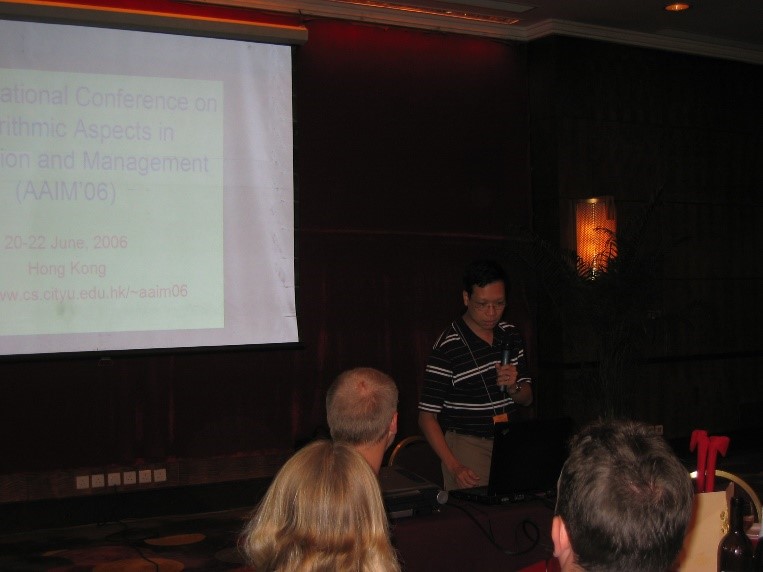
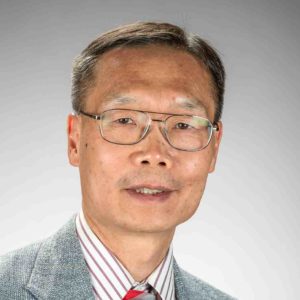
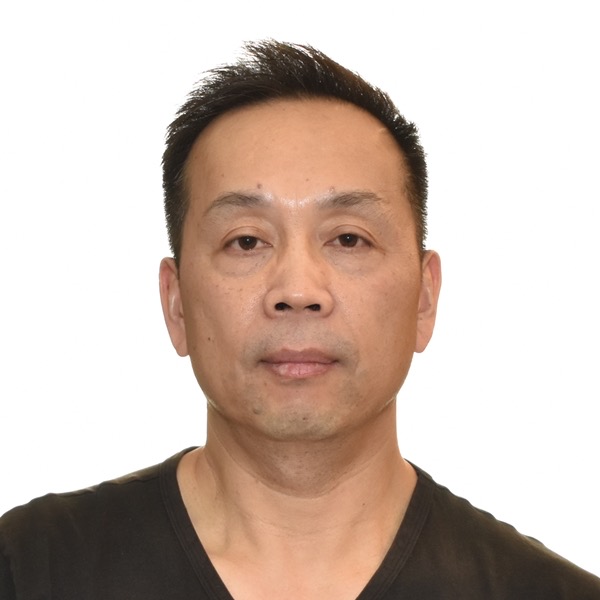
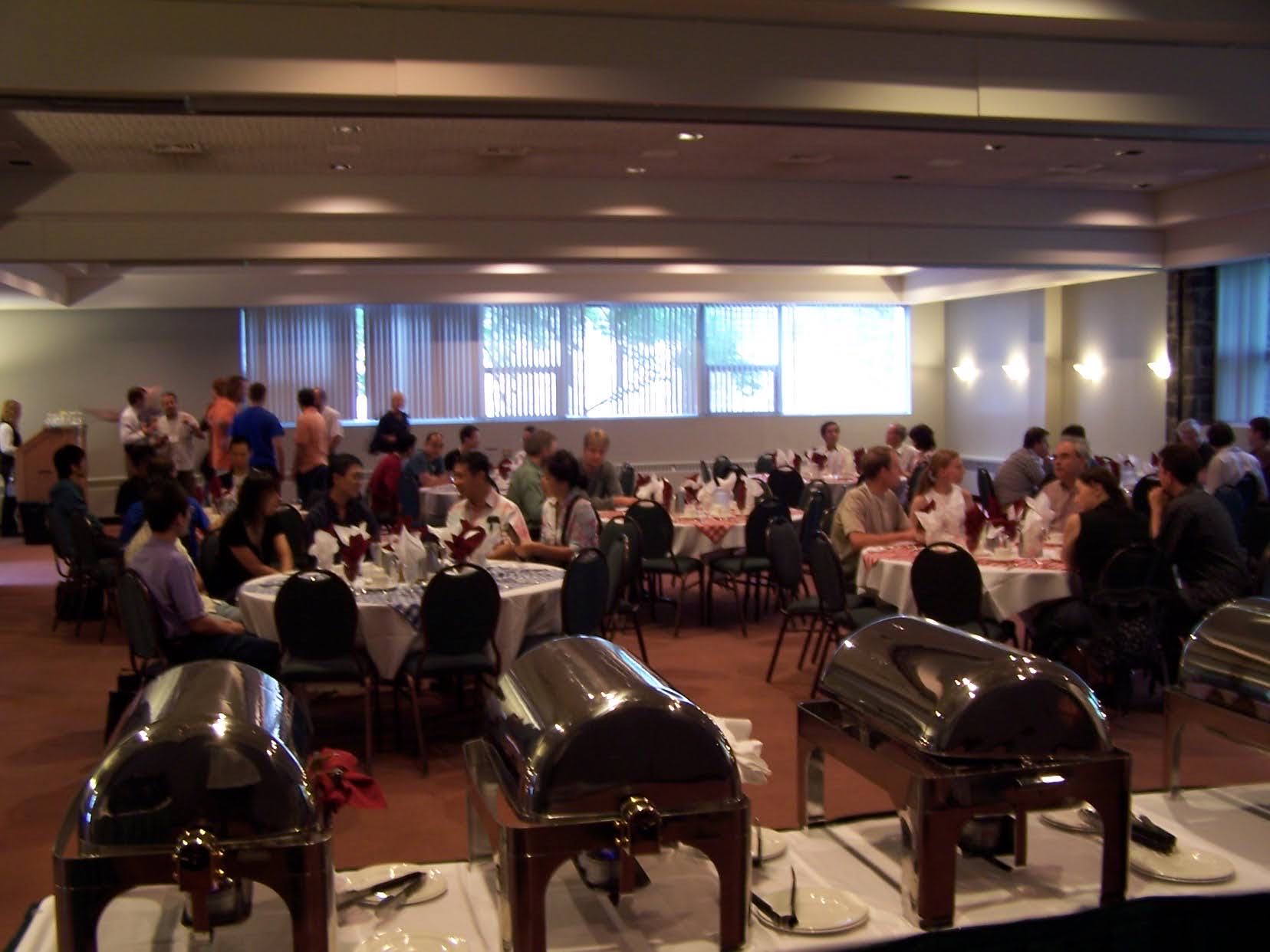
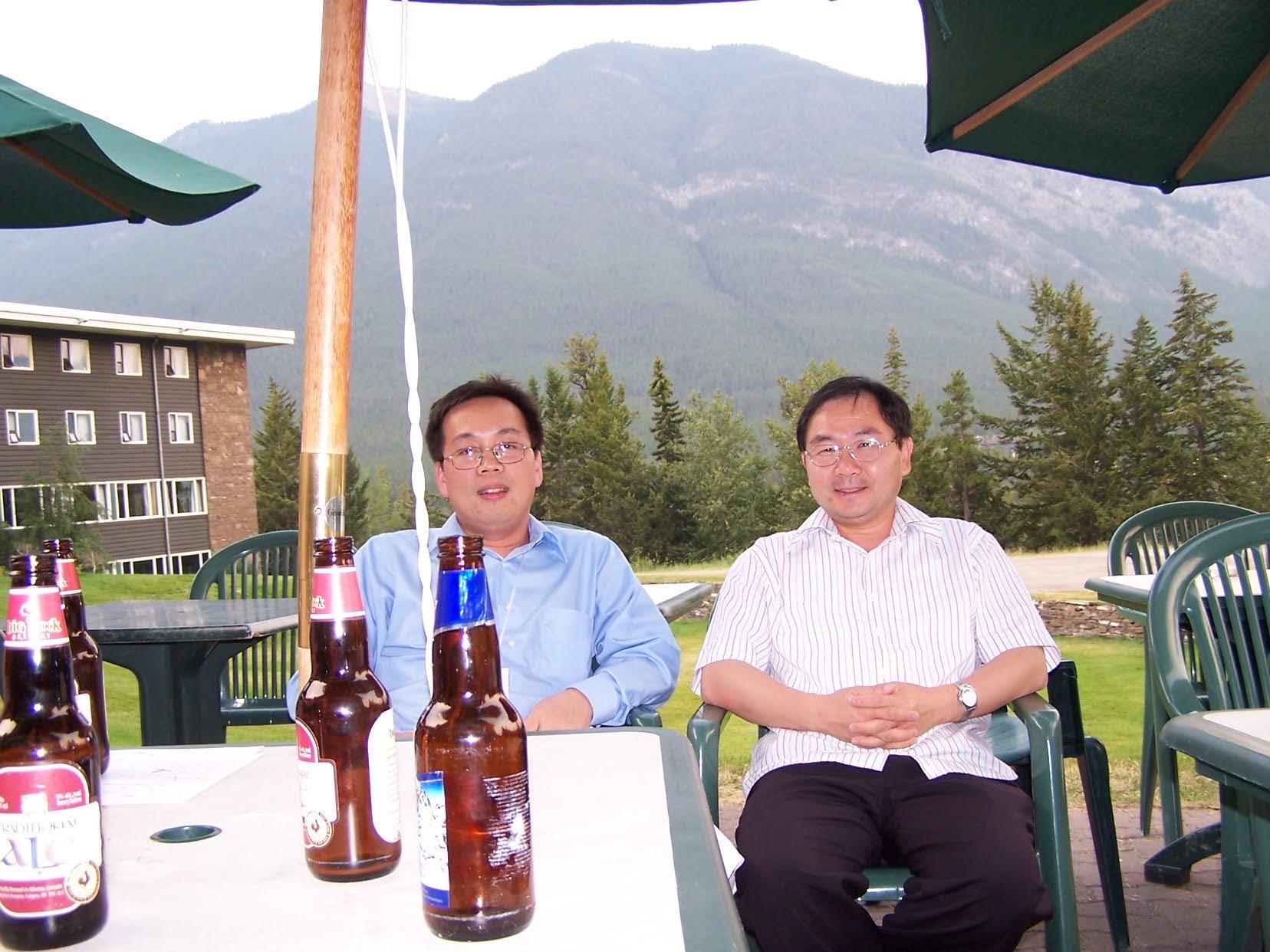
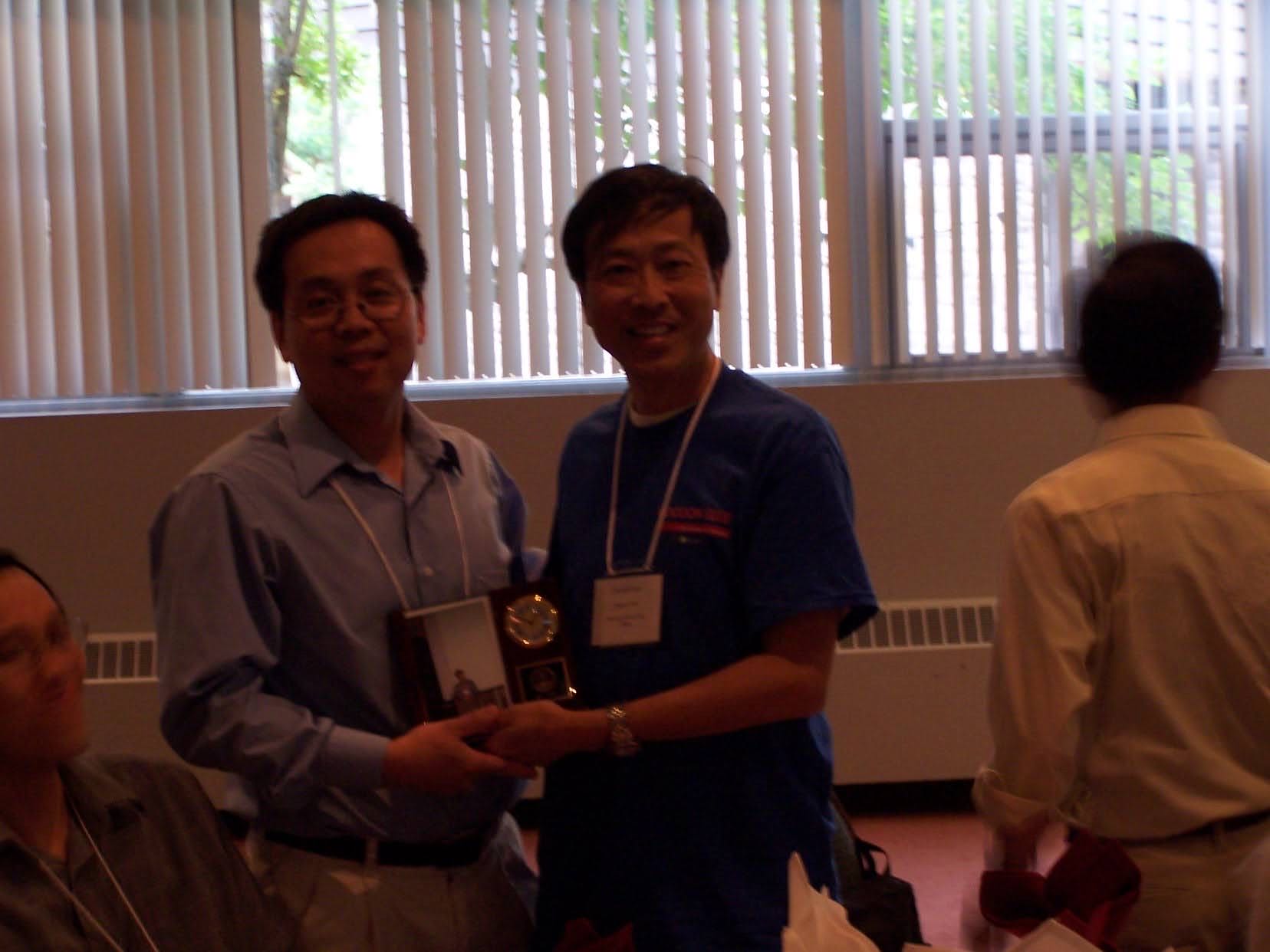
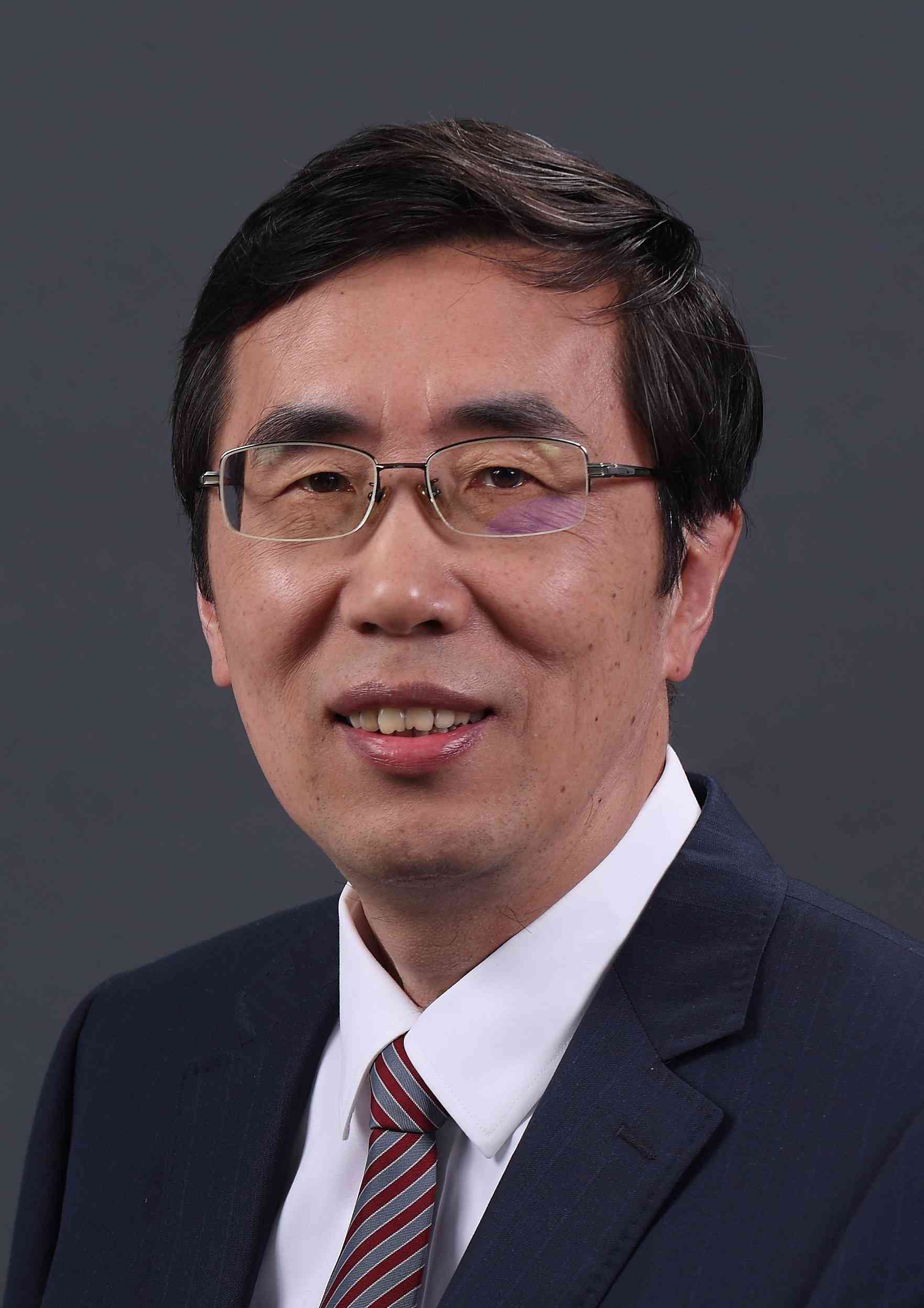
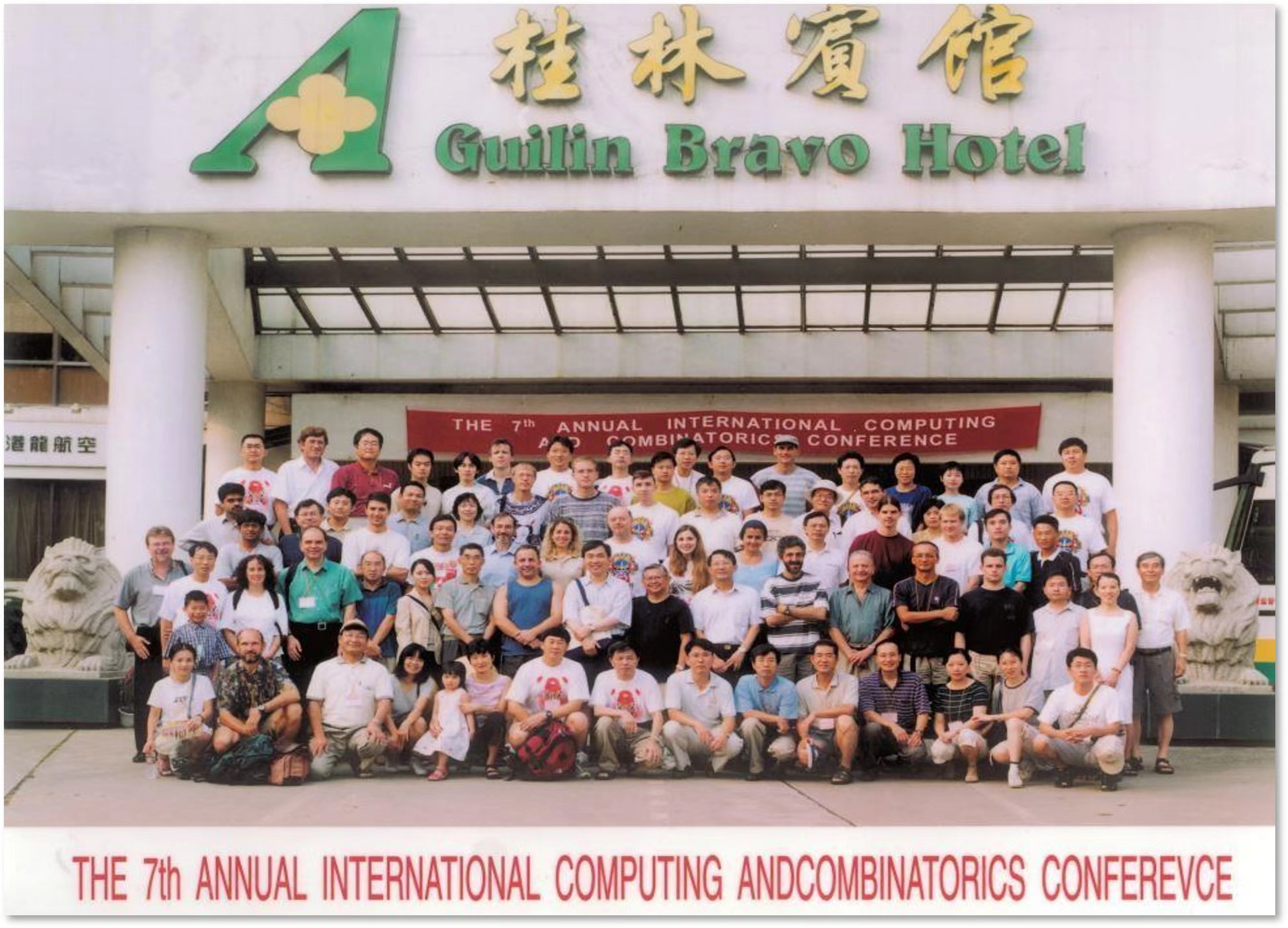
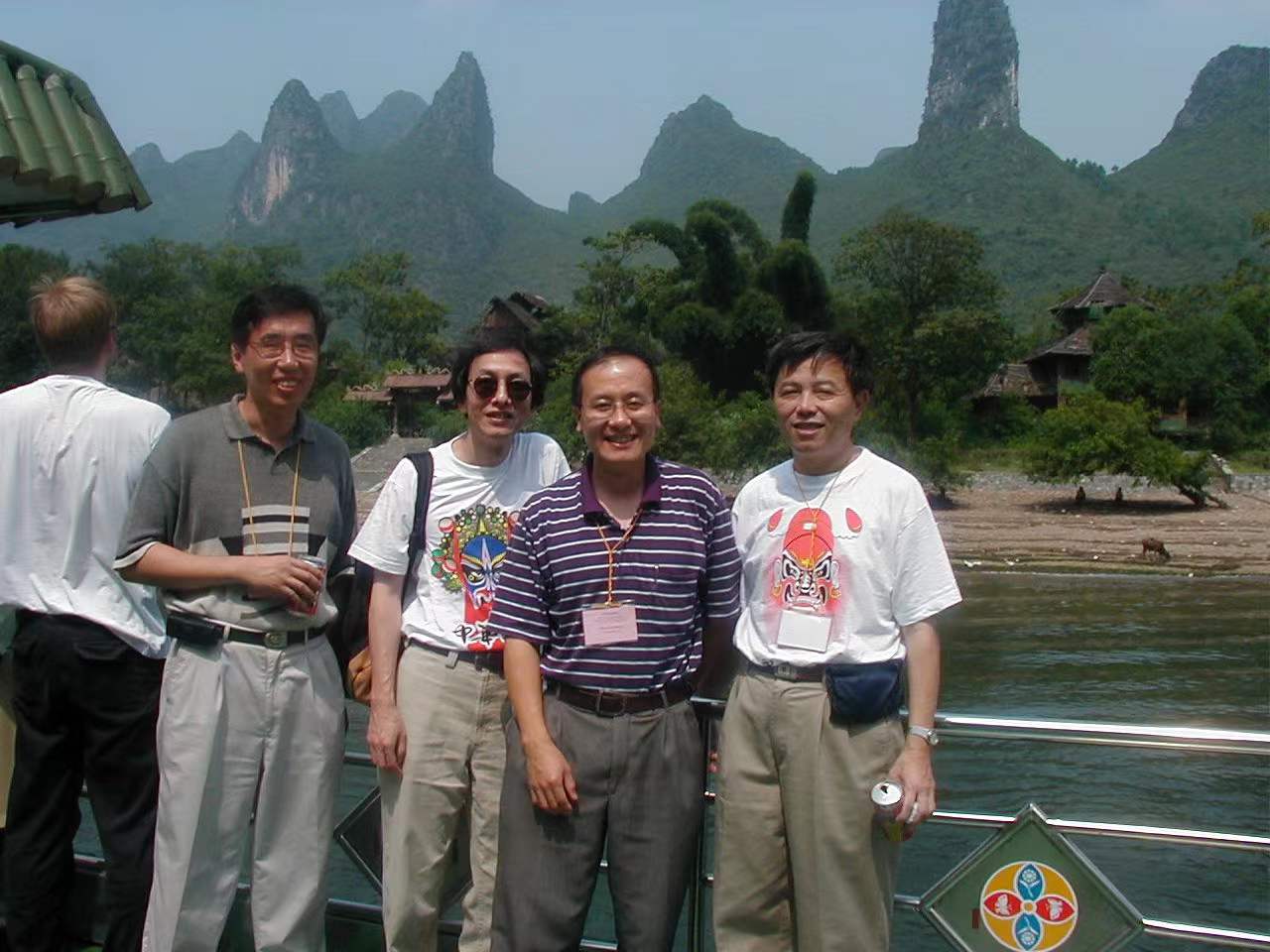
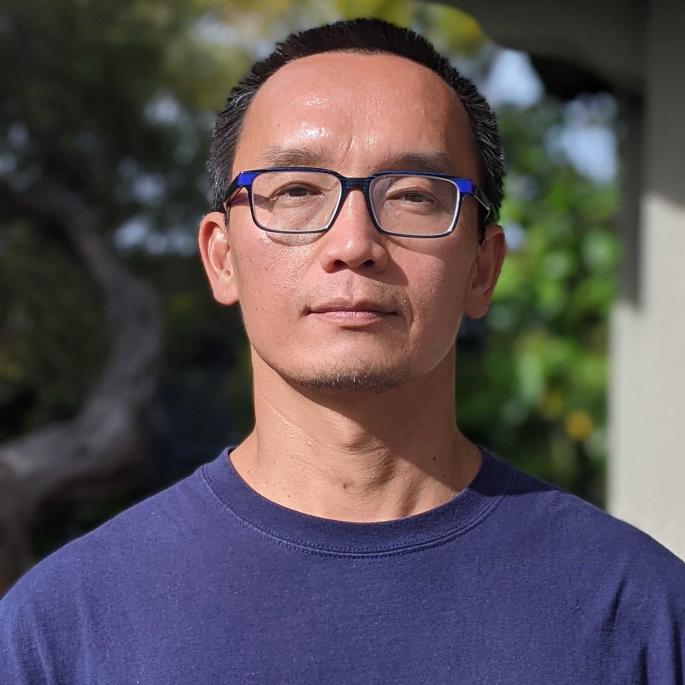
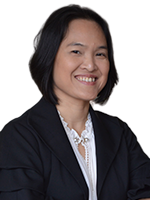
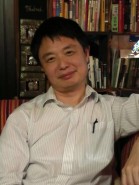
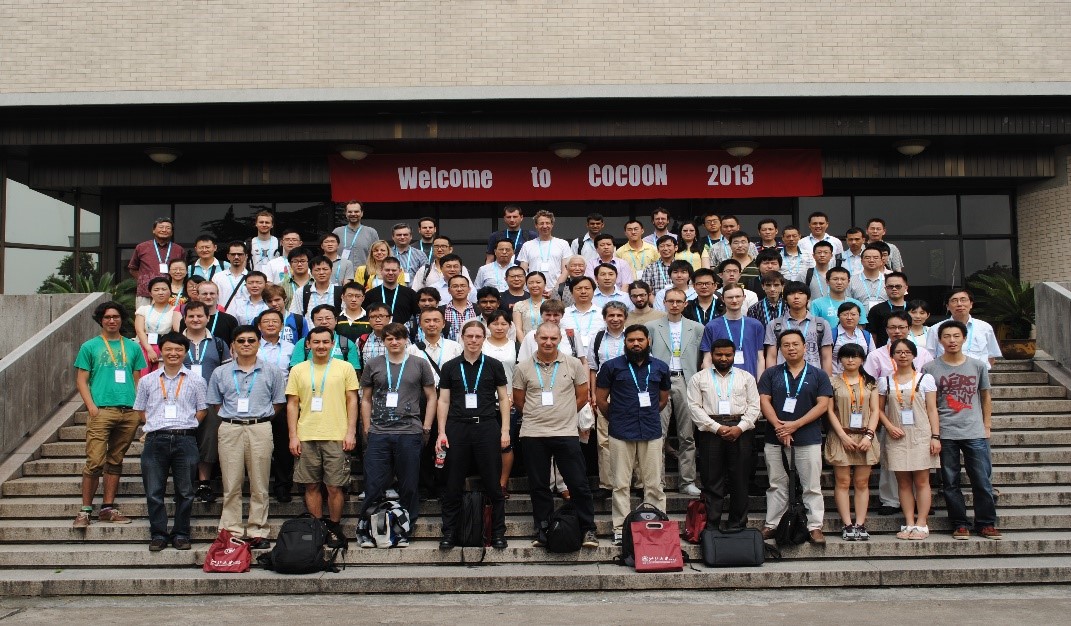
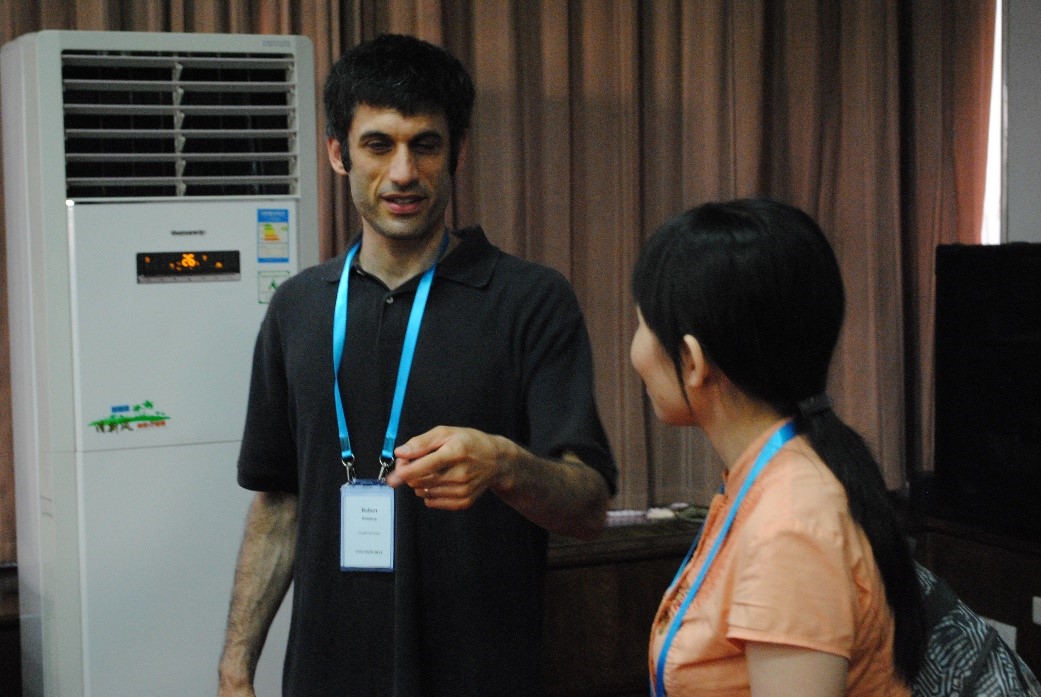
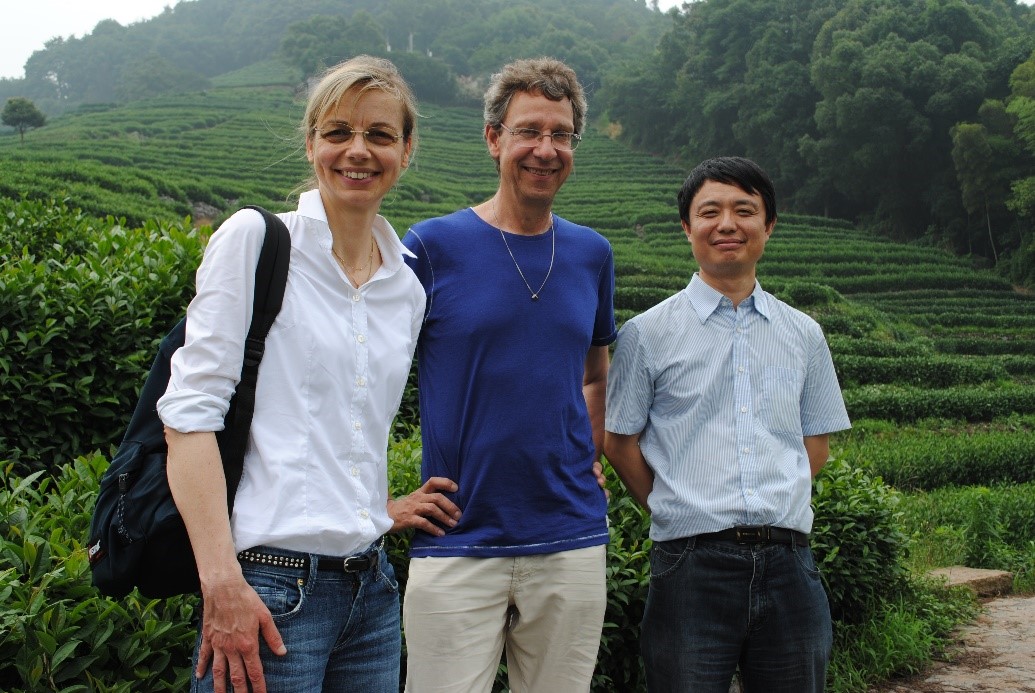

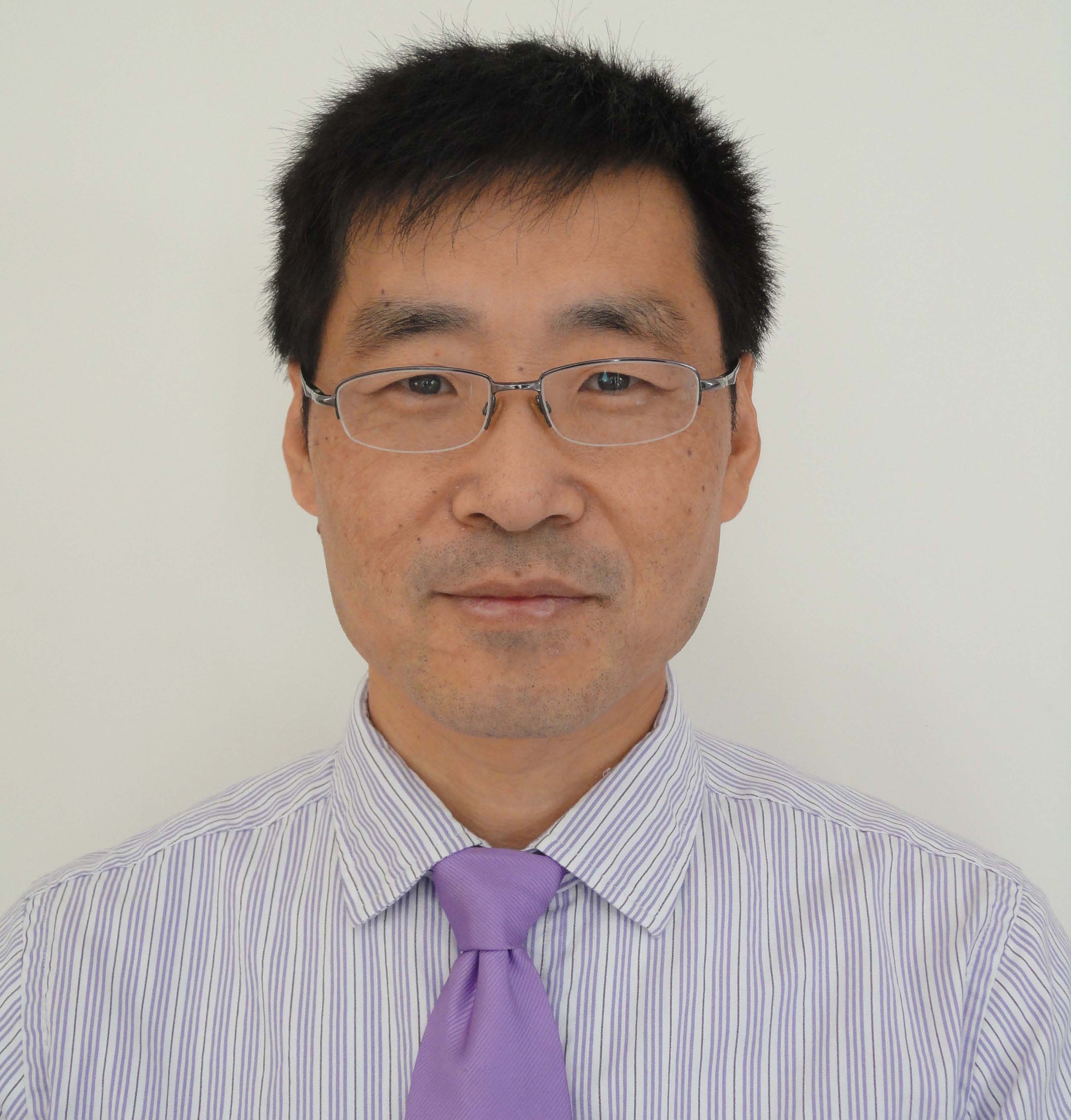
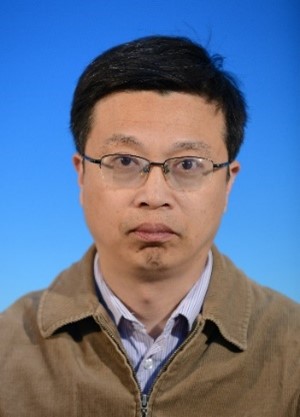
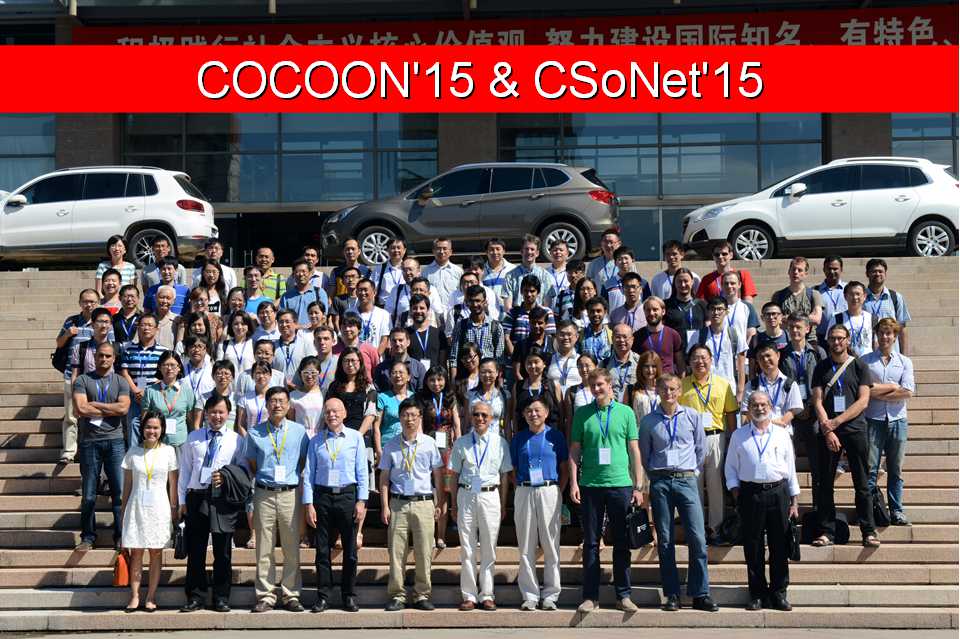
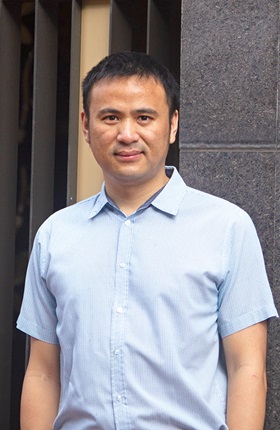

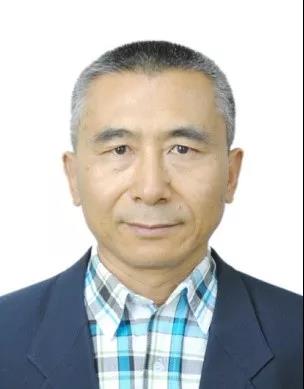
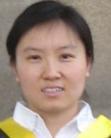
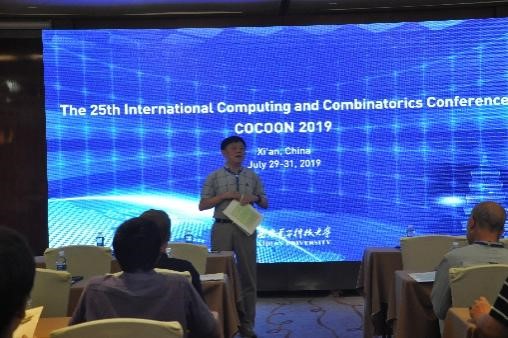
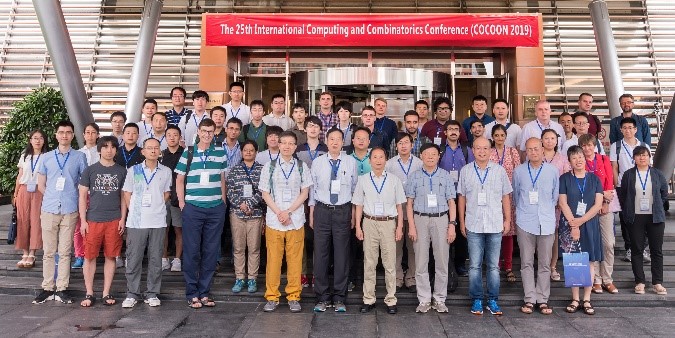
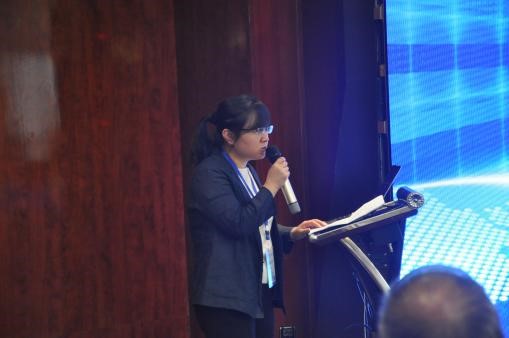
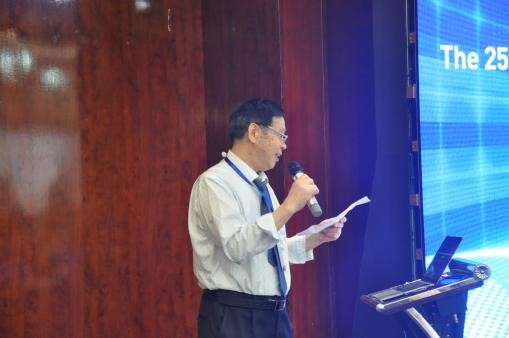
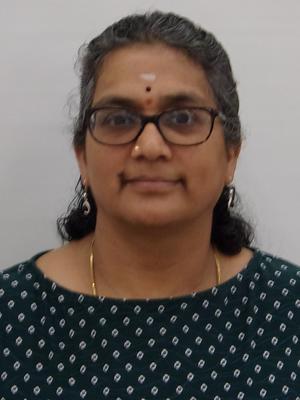
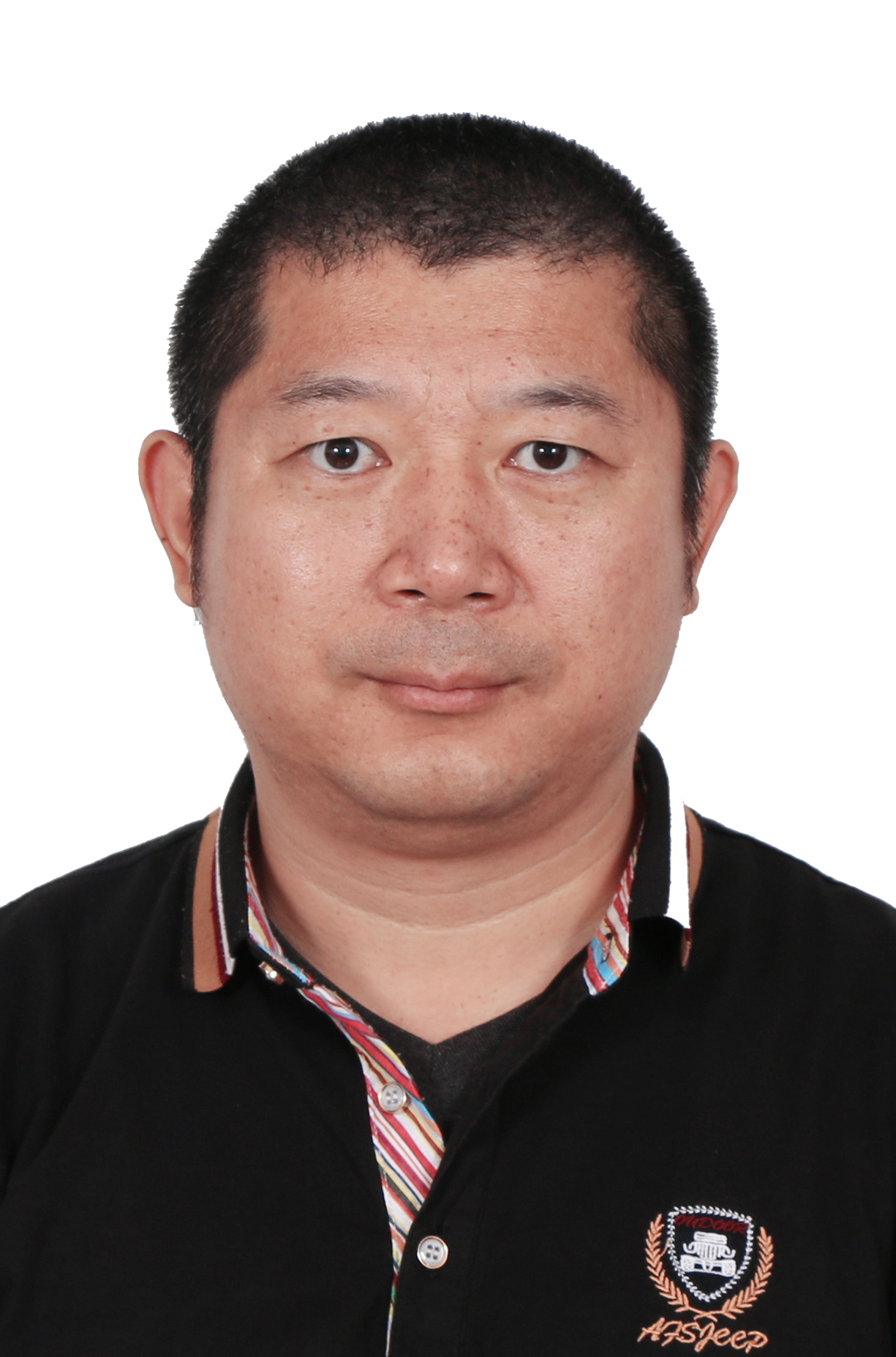

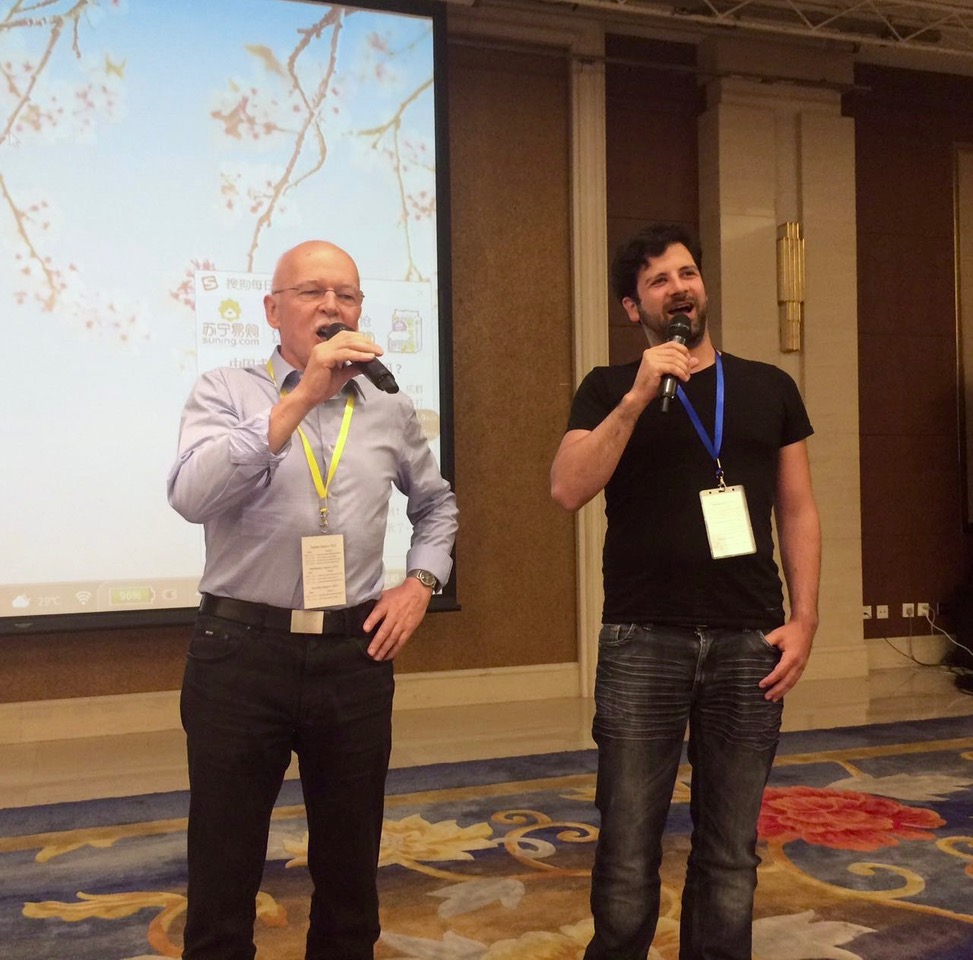
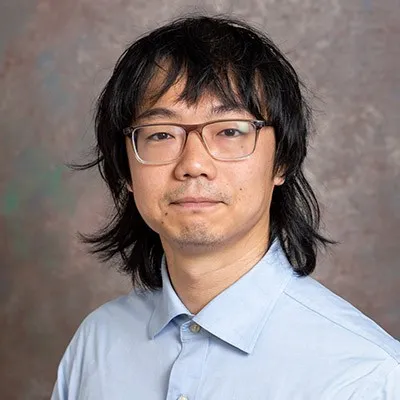
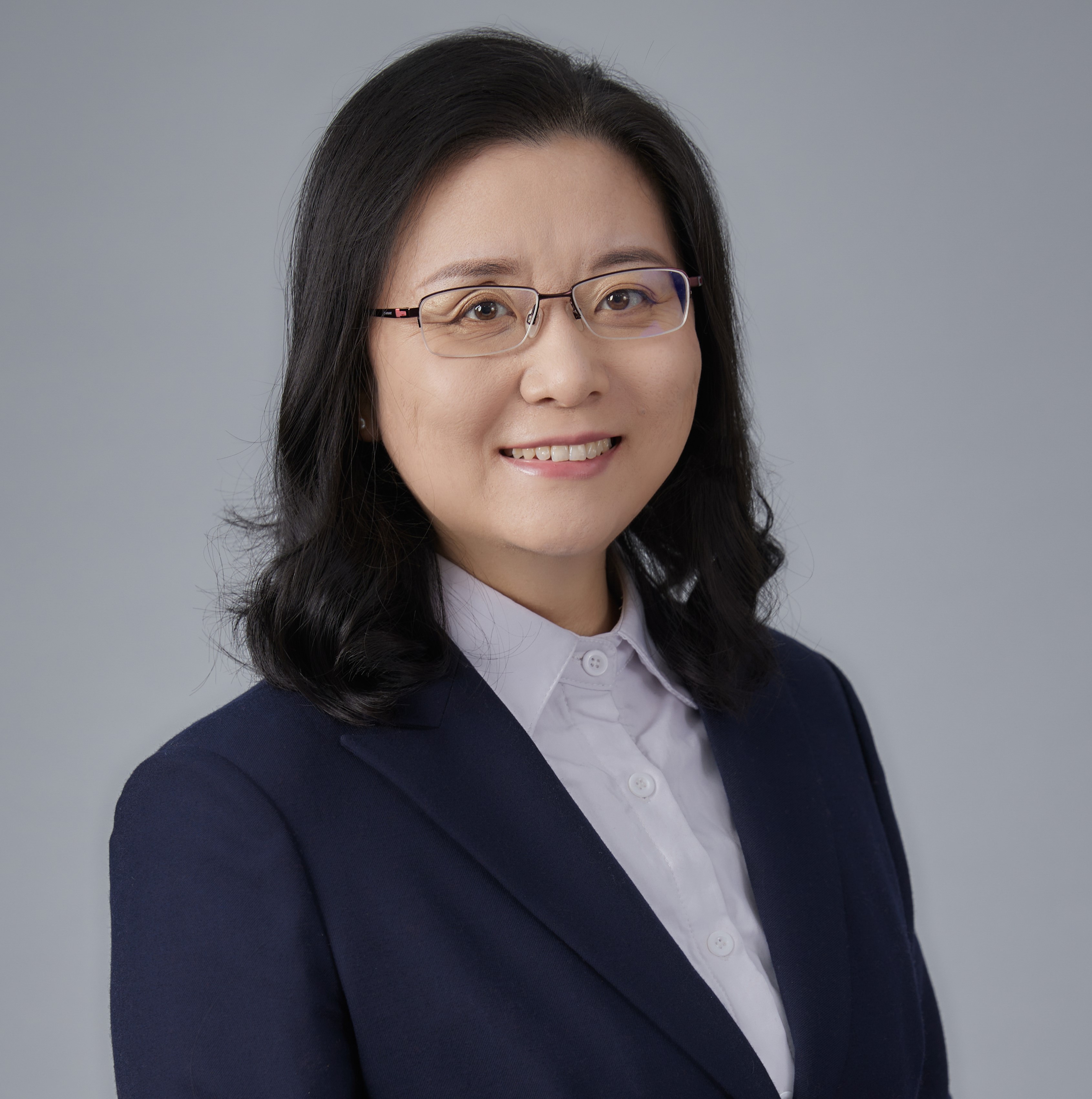
Memoir
- Ding-Zhu Du (1995, 2000, 2011, 2013, 2015, 2019)
- Ming Li (1995)
- Jin-Yi Cai (1996)
- Takeshi Tokuyama (1999)
- Xuemin Lin (2000)
- Yuri Gurevich (2001)
- Jie Wang (2001 and 2008)
- Louxin Zhang (2002)
- Binhai Zhu (2003)
- Lusheng Wang (2005 and 2018)
- Danny Chen (2006)
- Guohui Lin (2007)
- Xiaodong Hu (2008)
- Hung Q. Ngo (2009)
Please click PDF file MemoirDetail-COCOON2024 for more details.

How Was COCOON Started?
Ding-Zhu Du
(PC Chair of COCOON 1995, 2000, 2011, 2013, 2015, 2019; Professor, University of Texas at Dallas, USA)
ISAAC is a conference normally held in winter. However, there is a unique exception. It is in 1994, ISAAC was held in Beijing during summer. A lot of Chinese professors come from North America to participate the conference and to go back their hometown for family reunion, They really enjoy this trip and wish ISAAC could be held again in summer. Therefore, in the steering committee meeting during banquet, I proposed to consider this request. However, this consideration received strong objections. The steering committee made a decision that ISAAC will not have summer conference again. When this decision reached those oversee Chinese professors, it made them uncomfortable. Thus, an idea for having our own summer conference appeared and became an important topic discussed between them. Conference name “COCOON” was proposed by Ming Li.
The first COCOON was sponsored by Institute of Applied Mathematics (IAM), Chinese Academy of Sciences, Friendship Travel Agency, and Xi’an Jiaotong University. Specifically, finance and foreign affairs were managed by IAM , finding local hotel with good deals was done by Friendship Travel Agency, Xi’an Jiaotong University provided some assistants for helping on desk. Friendship Travel Agency asked only to put a table in conference site to serve personal traveling plans after conference. Overall, the local organization was managed by local chair Xiaodong Hu. This model was very successful. Therefore, COCOON in Shanghai, in Kunming, in Guilin, in Zhangjiajie, were all controlled locally by Xiaodong Hu, using this model.
The first COCOON had financial support from Chinese Academy of Sciences (CAS) and Ministry of Science and Technology of China (MOSTC). Actually, those support were specially approved by President Guangzhao Zhou of CAS and a director of MOSTC for ISAAC’1994. The first COCOON used the leftover money. With those supports, the first COCOON gave financial aid to all authors from mainland China This decision wad based on two facts. (1) Very few papers from mainland China were able to be accepted. (2) At that time, many professors in mainland China had some difficulty in affording an international conference spending by his/her own grant.
COCOON sees a big change about TCS research in China. It accepted a few papers from China until accepted a big number of papers from China. It is one of evidences of the growth of science and technology of China. It will continue to serve as a bridge between China and oversee to exchange people’s ideas and their research outcomes, and let the world more wonderful.
COCOON的起源故事
堵丁柱
(1995年, 2000年, 2011年, 2013年, 2015年, 2019年COCOON大会程序委员会主席,美国德克萨斯大学达拉斯分校计算机系教授)
国际算法与计算研讨会(ISAAC)通常在冬季举行。然而,在 1994 年,ISAAC 破例在夏季于北京举行。许多来自北美的华人教授参加了这次会议,并借此机会回家与家人团聚。他们非常享受这次旅程,并希望 ISAAC 能再次在夏季举行。因此,在晚宴期间的指导委员会会议上,我提议考虑这个请求。然而,这个提议遭到了强烈反对。指导委员会决定,ISAAC 将不再在夏季举办会议。当这个决定传达给那些海外华人教授时,他们感到很不舒服。于是,举办我们自己的夏季会议的想法出现了,并成为他们讨论的重要话题。会议名称“COCOON”是由Ming Li教授提议的。
首届COCOON 会议由中国科学院应用数学研究所 (IAM)、友谊旅行社和西安交通大学赞助。具体来说,IAM 负责财务和外事,友谊旅行社负责寻找价格优惠的本地酒店,西安交通大学提供了一些人力服务于接待工作。友谊旅行社只要求在会议现场设一张桌子,为参会者提供会后个人旅行服务。总体来说,本地组织工作由本地主席Xiaodong Hu教授负责。这种模式非常成功。因此,上海、昆明、桂林、张家界的 COCOON都是由 Xiaodong Hu 教授采用这种模式举办。
首届COCOON 会议得到了中国科学院和科技部的财政支持。事实上,这些支持是由周光召院长和科技部的一位司长特批用于 ISAAC’1994 的。首届COCOON 使用了剩余的资金。有了这些支持,首届COCOON 为所有来自中国大陆的作者提供了资助。这一决定基于两个事实:(1)很少有来自中国大陆的论文能够被接受。(2)当时来自中国大陆的教授在凭借自己的科研经费负担国际会议费用时有一定困难。
COCOON 见证了中国理论计算机科学研究的巨大变化。从接受少量中国论文到接受大量中国论文,这表明了中国科学技术的进步。COCOON 将继续作为中国与海外交流思想和研究成果的桥梁,让世界更加美好。

COCOON 1995
Ming Li
(PC Chair of COCOON 1995; Professor, University of Waterloo, Canada)
When Dingzhu initiated COCOON, I helped with the miscellaneous tasks and came up with the name of the conference. Francis Chin later asked me why I chose this name, which he considered inauspicious. He was proven wrong by the academic achievements nurtured by COCOON; it is a great name after all.
Although I couldn’t remember the detail of the academic events back in 1995 after 30 long years, some small things are still vivid in my mind. These small things are not about academics per se but more related to the academic environment. At that time, there was no high-speed rail, and a group of us took a train from Beijing to Xi’an. At Beijing Station, I needed 10 cents to use a public phone, so I went to the counter to get some change. The girl didn’t even raise her eyes and said she didn’t have it. Then my student John Tromp said he would have a try, and he succeeded immediately. Later, in order to save money, all of us, including our invited speakers, bought (cheaper) Chinese tickets. As a result, the ticket inspector came after the train started, and we needed to make up for the extra fees. I don't know who came up with the idea, but we asked the ticket inspector if they collected coins. We raised money together and got Canadian dollars, British pounds, US dollars, Indian rupees, Hong Kong dollars, a lot of coins. In the end, we escaped the fine, saving some money for the first COCOON. It's not easy to host an academic conference at that time, and I hope China Railway will forgive us. They have contributed to China's computer science industry.
COCOON 1995
李明
(1995年COCOON大会程序委员会主席,加拿大滑铁卢大学教授)
COCOON 是丁柱建议办的。我帮忙打杂。名字好像是我起的。Francis Chin后来问我,为什么起这个名字,不吉利。现在COCOON孕育的学术成果破茧而出,证明这个名字不错。
30年前的往事,1995年学术的事情想不起来了,倒是一些小事历历在目。这些小事无关学术,但是也算是学术环境吧。那时候没有高铁,我们一行人从北京坐火车去西安。在北京站,我要打公用电话,需要1毛钱,去找服务员换,那个姑娘眼都不抬,说没有。然后我的学生John Tromp说他去,结果立刻换了。然后我们大家为了便宜,包括我们的invited speakers 在内全部买了中国人的车票。结果开车后查票员来了,需要补票。不知道谁出的主意,问人家查票员是不是攒硬币,然后就大家集资,找来了:加币,英镑,美元,印度卢比,港币,一大堆钢镚,逃过了罚钱,为第一次COCOON省下了一些钱。办学术会议不容易,希望中国铁路原谅我们。 算他们为中国计算机事业贡献了吧。

COCOON 1996
Jin-Yi Cai
(PC Chair of COCOON 1996; Professor, University of Wisconsin, USA)
On this auspicious 30th anniversary of the founding of COCOON, I wish to express my heart-felt congratulations and well-wishes. This wonderful community of scholars in theoretical computer science and combinatorics is the one that I proudly belong to and very much feel at home.
I was very fortunate to be present at the birth of COCOON, so to speak. I still vividly remember that summer day in 1994. I was attending ISAAC (International Symposium on Algorithms and Computation) in Beijing. During one of the lunch breaks (and of course, any conference hosted in China has such sumptuous lunches and dinners that no other international conferences come close…), Dingzhu Du and Ming Li proposed that a new conference be established, to which all of us at that lunch table enthusiastically supported. We all pledged to volunteer our time and effort to make it a success. This is the founding of COCOON, and our two fearless leaders of this nascent community will chair the first meeting the next year in Xi’an. And the rest, as they say, is history.
Not much else from that 1994 ISAAC conference is still memorable to me today. I remember I presented a paper, titled “Rotation Distance, Triangulations of Planar Surfaces and Hyperbolic Geometry” co-authored with Michael Hirsch, a brilliant postdoc at Princeton at the time. I guess my talk went ok; I remember Ron Graham said after the talk he liked the result. (I believe Ron was an invited speaker at the conference that year). During that visit to Beijing, I also remember making my way to visit Prof. YANG Dong Ping at the Institute of Software. I just remember the Institute was still in that low-rise building that was typical from the 50s, but several blocks of streets leading there were all dug up, like a gigantic construction site. It was almost impassable for the rickety taxi (面的) that I was riding on. (But of course those 面的 were already a huge step forward for daily life from a decade or two earlier.)
That 1994 visit to China was my very first after leaving China in 1981 as an aspiring graduate student (with some 50 dollars in my pocket, the maximum allowed
leaving China at that time). By 1994 I could already see the change was palpable. Of course, I could not have imagined the epoch change that was yet to come. In 1994, theoretical computer science in China was quite weak. I am very fortunate to be among a group of colleagues that contributed to the enormous development of the subject in China, and COCOON played an indispensable role in it. In 1996, I was asked to chair the second meeting of COCOON, and I believe it was a success. Over the years, I have contributed a dozen papers to this conference, including some I consider among my best ones. Now with more and more excellent young researchers in TCS from China, I am confident that more glorious days for COCOON await.
COCOON 1996
蔡进一
(1996年COCOON大会程序委员会主席; 美国威斯康星大学教授)
在COCOON成立三十周年这个吉庆的日子里,我谨表达衷心的祝贺和美好的祝愿。这是一个非常优秀的理论计算机科学和组合数学学者的家园,我为自己属于这个团队而倍感自豪。
我非常幸运地见证了COCOON的诞生。至今仍清楚地记得1994年那个夏天,我当时正在北京参加ISAAC(国际算法与计算研讨会)。在一次午餐期间(任何在中国举办的会议都有非常丰盛的午餐和晚餐,其他国际会议都无法比拟),Ding-Zhu Du教授和Ming Li教授提出建立一个新的会议,我们那一桌的所有人都热情支持,并承诺为它的成功投入时间和精力。这就是COCOON的创立,两位卓越的领袖将主办次年在西安举行的第一次会议。正如人们所说,接下来的便成为了历史。
1994年ISAAC会议中发生的事情,大多我已记不太清了。还记得是,我展示了一篇论文,题为《旋转距离、平面表面的三角剖分和双曲几何》,合作者是才华横溢的Michael Hirsch,当时他在普林斯顿作博士后。我的演讲效果还不错,Ron Graham说他喜欢这个结果(我记得Ron那年是会议的特邀演讲者)。在那次北京之行中,我还特意去拜访了软件研究所的YANG Dong Ping教授。当时研究所还在一栋五十年代典型的低矮建筑中,但通往那里的几条街道都被挖开了,像一个巨大的施工现场。我坐的那辆摇摇晃晃的出租车(面的)几乎无法通行(但当然,那些面的相比一二十年前的日常生活已经是巨大的进步了)。
1981年,我作为一个怀揣大约50美元(当时离开中国的最高允许金额)的有志研究生离开中国。1994年是我第一次回国。当时,我已经能够感受到中国的显著变化,却仍然无法想象即将到来的巨大变化。1994年,中国的理论计算机科学还很薄弱。我非常幸运能与一群志同道合的人一起为这一领域在中国的巨大发展做出贡献,而COCOON在其中起到了不可或缺的作用。1996年,我被邀请主持第二届COCOON会议,我相信那次会议是非常成功的。这些年里,我在这个会议上贡献了十几篇论文,其中有一些是我认为最好的作品。如今,随着越来越多优秀的中国年轻研究者投身于理论计算机科学,我相信COCOON的未来会更加辉煌。”

COCOON 1999
Takeshi Tokuyama
(PC Chair of COCOON 1999; Professor, Kwansei Gakuin University, Japan)
Happy 30th birthday of COCOON!
It was my precious memory to chair the PC of the 5th COCOON held in Tokyo in July, 1999.
Although we worried about Nostradamus's “1999 seventh month” prediction, it was successful and participants enjoyed Koto (Japanese zither) performance, Japanese foods, and river cruise. I was young as shown in the portrait, and D.T. Lee kindly mentored me as an experienced co-chair. Hard copies of submissions were sent to PC members by FedEx, and I struggled to handle the PC discussion using a prototype of the conference management system. I am pleased that my effort was fruitful. The proceedings volume has several impact papers, and Prabhakar Raghavan’s invited talk “The web as a graph: measurements, models, and methods” is a seminal work on web analysis cited more than 1500 times.
COCOON 1999
Takeshi Tokuyama
(1999年COCOON大会程序委员会主席,日本关西学院大学教授)
COCOON 30周年快乐!
担任1999年7月在东京举行的第五届COCOON大会的程序委员会主席是我宝贵的回忆。
尽管当时我们担心诺查丹玛斯的“1999年第七个月”的预言,但大会还是取得了成功。与会者欣赏了古筝演奏,品尝了日本美食,还参加了河上游船活动。从这幅肖像画可以看出,我当时很年轻,D.T. Lee作为经验丰富的联合主席亲切地指导了我。那时论文的纸质版通过联邦快递寄送给程序委员会成员,我还为使用会议管理系统进行程序委员会讨论而努力。我很高兴我的努力得到了回报。会议论文集里包含了几篇有影响力的论文,Prabhakar Raghavan的特邀报告“The web as a graph: measurements, models, and methods”是网络分析领域的开创性工作,已经被引用超过1500次。

My First Time to Serve for a PC Co-Chair for an Internation Conference
Xuemin Lin
(PC Chair of COCOON 2000; Professor, The University of New South Wales, Australia)
It was indeed my first time to serve for an international conference as a PC chair and as an ECR. To me the most challenge part is to get top researchers to organize this young conference with me, we invited two famous professors in the field beside me, Prof Dingzhu Du from IAM, Prof Peter Eades from Sydney Uni, to co-organize the conference. It is also a challenge to get very well-known scientists to deliver keynotes. To this end, we invited Prof Christos H. Papadimitriou from UC Berkley and Prof Richard Brent from Australian National University.
This experience is quite encouraging through my whole academic career. This day-to-day contact with my role models, gives me a great opportunity to observe their academic daily life. These observations are very helpful for me to identify the characters of the excellent researchers. To conclude, I start to realize the way to a successful academic. Indeed, diligence is the path to the mountain of knowledge,hard-working is the boat to the endless sea of learning.
首次担任国际会议程序委员会联合主席
Xuemin Lin
(2000年COCOON大会程序委员会主席,澳大利亚新南威尔士大学教授)
对我来说,第一次作国际会议的程序委员会主席,最具挑战性的是邀请顶尖学者与我一起组织这个年轻的会议。除我之外,会议组织者还有该领域的两位著名教授:来自IAM的Ding-Zhu Du教授和悉尼大学的Peter Eades教授。邀请著名学者做主题演讲也是一个挑战。为此,我们邀请了加州大学伯克利分校的Christos H. Papadimitriou教授和澳大利亚国立大学的Richard Brent教授。
这是一段在我整个学术生涯中都具有激励作用的经历。天天与心中的榜样密切接触,为我创造了一个观察他们日常学术的绝佳机会。这些观察对我识别优秀研究人员的特质大有帮助。我开始意识到成为成功学者的途径:“书山有路勤为径,学海无涯苦作舟”。

Guilin 1988 and 2001: A Micro Memoir
Yuri Gurevich
(PC Co-Chair of COCOON 2001; Professor Emeritus, University of Michigan, USA)
Thank you, Professor Gao Xiaofeng, for the kind invitation to share my memories. Actually, I always was good at forgetting things, and with years I am getting even better at that When the original invitation arrived, I did not recognize it as something relevant. But Prof. Gao was persistent. Her second invitation stirred up my memory. I love theoretical computer science and have never left it. Nevertheless, already in 2001, the focus of my research was in software engineering, and then it shifted again and again. Besides, the academic aspects of COCOON have been largely covered by other invitees. So let me concentrate on the culturalaspects.
COCOON 2001 took place in Guilin. It was my second visit to Guilin and to China. In the late spring of 1988, I spent six weeks in China: four weeks in Beijing, a week in Xian, and a week in Guilin. Chinese history and philosophy long fascinated me. So when my former student Libo Lo invited me to visit China, I jumped on the opportunity. In all three places, I lectured on the basics of computer science, in English. Libo translated from English to Mandarin. The students seemed interested but quiet. I kept inviting them to ask questions as we go; such feedback would be useful to me. But they didn’t. They asked their lecture-related questions, if any, at the end of the lecture. But, when the class was dismissed and I was collecting my stuff, a bunch of students would approach me and ask about opportunities to study in the US.
There were few Westerners in China in 1988. Many Chinese had never seen a Westerner. I got accustomed to being stared at as if I was an exotic zoo animal. But everybody was friendly, and some of them wanted to have a picture with me; I was happy to oblige.
There were few cars, even in Beijing. Bicycles were a major mode of transportation. Libo gave me an old bike, and we biked around like everybody else. Once a colleague of Libo mentioned a beautiful place, very much worth visiting but too remote to bike there. I asked whether we could take a bus there. Yes, he said, but they will make a picture of you. I didn’t mind them taking pictures of me. You don’t understand, he said, they will make a picture of you. Eventually I understood: There will be so many people on the bus that they will flatten me.
Typically Libo was with me. But, to get around all by myself, I learned a survival minimum of Mandarin. In general, I tried to dive into Chinese culture. In particular, I preferred University hostels to hotels for Westerners. The hostels provided Chinese atmosphere, good tea, and some bed bugs, especially outside of Beijing. When I caught a cold, Libo took me to a doctor. She asked me whether I preferred Chinese or Western medicine. I chose the first, and I was fine in a couple of days. Did those herbs help? Maybe. But then they say that, with medicine, it takes seven days to treat the flu, and without medicine, it takes a week.
To say that I was impressed by Chinese attitude to food would be an understatement. The 1988 China was poor, and many vestiges of the Soviet style socialism were clearly visible to somebody, like me, who grew up in the USSR. But wonderful food was available, albeit for a price. The sheer variety of food was incredible. We eat everything with four legs, I was told by a colleague, except for the table. Some street food was delicious.
In a Guilin restaurant, I ate one of the best dishes in my life, called “Dragon fighting the armored king”. The dragon was a poisonous snake, and the armored king was a turtle. A young man with a washbowl of snakes appeared, and I selected one snake. The man skillfully caught it and started to open him with knife. I didn’t select a turtle.
My 2001 trip to Guilin was much different. The city was unrecognizable: tall modern buildings everywhere you look. The restaurant that impressed me was impossible to find; most probably it did not exist anymore. The conference was well organized and had excellent speakers from all over the world. The working language was English, and the conference could be held anywhere in the world, with one exception: a number of young and competent Chinese computer scientists.
On Wednesday, we had a conference tour to Yangshuo, a cruise on the stunningly beautiful Li River, flanked by its famous green hills. On Tuesday, at the conference banquet, I was excited to order “Dragon fighting the armored king”. It wasn’t bad. In fact, it looked gorgeous, but it wasn’t a match for my 1988 meal that looked so humble in comparison. It turned out that those turtles were endangered and protected by law, and those poisonous snakes were not available either.
This may be a good point to stop. I intended to think — and write something — about my changing attitude toward complexity theory and combinatorics. But this micro memoir is getting too long.
Happy birthday, COCOON! Many happy returns!
桂林1988年和2001年:微型回忆录
Yuri Gurevich
(2001年COCOON大会的PC联合主席; 美国密歇根大学名誉教授)
感谢高晓沨教授的盛情邀请,让我分享我对COCOON的记忆。事实上,我一直擅长忘记事情,随着岁月流逝,这方面的能力也越来越强。最初接到邀请的时候,我并未很重视。然而,高教授非常坚持。她再次邀请提醒了我。我热爱理论计算机科学,从未远离。其实,早在2001年,我的研究重点已经转向了软件工程,之后仍不断变化。而且,其他受邀者已经谈了很多COCOON学术方面的事情。因此,我想集中谈谈文化方面的故事。
COCOON 2001 在桂林举行。这是我第二次访问桂林,也是第二次来到中国。1988年晚春,我在中国度过了六周:四周在北京,一周在西安,一周在桂林。我一直对中国的历史和哲学怀有浓厚的兴趣。因此,当我的前学生Libo Lo邀请我访问中国时,我立刻欣然接受。在这三处,我用英语讲授计算机科学的基础知识,Libo将我的讲课内容翻译成汉语。学生们似乎对课程很感兴趣,但都很安静。我不断鼓励他们随堂提问,这样的反馈对我来说会非常有帮助。但他们并没有,而是在讲座结束后才提出与所讲内容相关的问题。当课程最后结束的时候,我正在收拾东西,一些学生向我询问有关去美国留学的事宜。
1988年,中国的西方人很少,许多中国人从未见过西方人。我逐渐习惯了被人们像看稀有动物一样盯着。但每个人都很友好,有些人还希望与我合影,我也欣然同意。
当时,即使在北京,汽车也很少,自行车是主要的交通工具。Libo借给我一辆旧自行车,我们像其他人一样骑车四处游览。一次,Libo的一个同事提到一个非常值得一游的美丽地方,但离得太远,骑自行车不方便。我问是否可以坐公交车去。他说可以,但他们会给你“拍照”。我不介意他们给我拍照。他说,你不明白,他们会“拍扁”你。最终我明白了:车上的人非常非常多,会把我挤扁。
通常情况下,Libo会陪着我。但是,为了能够独自出行,我学了一些基本的生话用语。总体来说,我尽量融入中国文化。特别是,我更喜欢住在大学宿舍而不是西方人常住的酒店。宿舍里充满了中国的氛围,有好茶,也有一些臭虫,尤其是在北京以外的地方。当我感冒时,Libo带我去看医生。她问我更喜欢中药还是西药。我选择了中药,几天后我就好了。那些草药有效吗?也许吧。但人们常说,用药治感冒需要七天,不用药治感冒也需要一周。
我惊叹于对中国人对待食物的态度。1988年的中国依然贫困,在我这种在苏联成长起来的人眼中,苏联式社会主义的许多痕迹尤为明显。然而,尽管价格不菲,美味的食物却随处可见。食物的种类之繁多,令人叹为观止。正如一位同事所说,我们吃所有有四条腿的东西,除了桌子。有些街头小吃的美味更是让人难以忘怀。
在桂林的一家餐馆里,我尝到了人生中最美味的菜肴之一,名为“龙虎斗”。“龙”是一条毒蛇,“虎”则是一只乌龟。一位年轻人端着一盆蛇走来,我挑选了一条。那人抓住蛇,熟练地用刀处理起来。我没有选择乌龟。
2001年的桂林之行与以往的经历大相径庭。城市面貌已不可识别:到处都是高耸的现代化建筑。那家曾给我留下过深刻印象的餐馆已经难以寻觅,很可能已经不存在了。会议组织得非常出色,来自世界各地的优秀讲者纷纷登台。会议的通用语言是英语,这样的会议在世界各地都有举办,唯一不同的是:有一批年轻而出色的中国计算机科学家。
星期三,我们前往阳朔进行了参观考察,在风景如画的漓江上乘坐了游船,两岸青山环绕,美不胜收。星期二的晚宴上,我兴奋地点了“龙虎斗”。菜品味道很不错,非常精美,但与1988年那顿看似朴素的饭菜相比,似乎逊色不少。原来,那些乌龟属于濒危物种,受法律保护,而毒蛇也已无法找到。
写到这里也许恰恰好。我本打算撰写一些内容,讲讲我对复杂性理论和组合学态度的变化,但这篇微型回忆录已经写得有些长了。
祝COCOON生日快乐!愿你们的未来充满更多美好时光!

Celebrating the 30th Anniversary of COCOON: Reflections and Future Prospects
Jie Wang
(PC Chair of COCOON 2001 and COCOON 2008; Professor, University of Massachusetts Lowell, USA)
This year marks the 30th anniversary of the International Conference on Computing and Combinatorics (COCOON). As an annual event, COCOON has been instrumental in fostering collaboration and innovation in the fields of computing and combinatorics. I’d like to extend my heartfelt congratulations to the founders of the conference and the organizers of each conference thereafter on this significant milestone!
Recollections
I had the honor of serving as co-chair for two COCOON conferences. I am deeply grateful to Professors Ding-Zhu Du and Ming Li for their support and confidence in entrusting me with this role for the conferences they co-founded. My sincere appreciation also goes to Professor Xiaodong Hu for his exemplary management of all aspects of conference logistics during my tenure as co-chair, including selecting a suitable conference hotel, arranging meeting rooms, and managing participants’ room and board, registration, conference banquet, and sightseeing tours. Professor Ker-I Ko also provided invaluable support during my time as co-chair. How I wish he could have lived to see COCOON's 30th anniversary.
Among the COCOON conferences I have attended, the most memorable was the one held in Guilin in 2001, for which I was the co-chair. At that time, the venue initially arranged by the hotel did not meet our requirements, necessitating communication and adjustments with the hotel staff. Professor Xiaodong Hu reminded me that in such situations, one should not be overly pedantic, and he personally demonstrated how to effectively communicate with the hotel staff. His flexible and situational approach was truly eye-opening for me.
Another unforgettable COCOON-related experience occurred at the 1998 conference in Taipei, which was my first visit to the city. My flight from the United States arrived at night, and after clearing customs, I took a taxi from the airport and told the driver I wanted to go to Academia Sinica. The driver casually asked, "Back from a business trip?" This simple question made me feel a sense of belonging, as if I looked like a local researcher. This might have been because Academia Sinica's environment was similar to where I grew up in Guangzhou, and my Mandarin, with a slight southern accent, wasn't very different from the local people. Even after many years, that moment remains vividly in my memory.
Computing and Combinatorics: Looking Ahead
The rise of neural networks in artificial intelligence presents a fascinating new area of exploration in addition to traditional areas of algorithm design and analysis, where combinatorics has played a significant role. For example, appropriately trained graph neural networks (GNNs) can efficiently generate approximate solutions to specific combinatorial problems in graph theory, such as finding the maximum clique or the longest path. However, GNNs lack the ability to explain their outputs. Exploring how combinatorial techniques can be integrated to provide explainability is an interesting research topic.
Contemporary AI applications often leverage large language models (LLMs) for their knowledge and inference capabilities in natural language processing and image processing tasks. This approach aligns with the concept of oracle Turing machines (OTMs), where the oracle represents a decision problem and acts as an all-knowing entity that instantly provides the correct answer to whether an instance (or query) generated during the computation is a positive instance of that problem.
It is interesting to explore how to extend the notion of OTMs to capture the essence of these computations, including those desired but not yet achieved in practice. Inspired by the idea of utilizing external knowledge to assist with computing tasks, the recent progress in LLMs with their powerful knowledge and inference abilities, and the fact that different LLMs have varying knowledge bases and capabilities, we propose a concept called the LLM-oracle machine (LLM-OM), where a cluster of LLMs replaces the single oracle of an OTM. Each LLM is treated as a black box capable of answering queries within its expertise, albeit with a delay. Both queries and answers are expressed in natural language, including formatting.
In essence, an LLM-OM takes an input representing a task, generates queries during the computation, obtains answers from appropriate LLMs in the LLM-oracle, and continues this process until it reaches a halting state with the final answer.
However, unlike an OTM where the oracle is reliable, LLMs can generate fabricated or misleading information, leading to incorrect or inadequate answers. LLMs may also provide different interpretations for the same query at different times. These issues – information hallucination, inadequacy, and inconsistency – are common challenges with LLMs. While advancements aim to mitigate these issues, complete elimination remains difficult. Therefore, we assume a probability exists that an LLM may provide an unacceptable answer to a query. Depending on the application context, an unacceptable answer could be blatantly incorrect or one that fails to meet the required adequacy level.
The paper titled "LLM-oracle Machines" (arXiv:2406.12213v3) describes four variants of LLM-OMs, with two commonly observed in AI applications and the other two specifically designed to address LLM hallucinations, biases, and inconsistencies, aiming for reliable outcomes. Exploring potential results provable with respect to LLM-OMs in connection with fault-avoidance computing would be an exciting research area.
Conclusion
COCOON has established itself a leading and influential international conferences in the field of computing and combinatorics. It provides a platform for scholars around the world to exchange ideas and collaborate, fostering research and development in this domain. Looking ahead, I am confident that COCOON will continue to flourish and make even greater contributions to the advancement of computing and combinatorics.
COCOON三十年庆:回顾与展望
王杰
(2001年和2008年COCOON程序委员会主席; 美国麻省大学罗威尔分校教授)
国际计算与组合学术会议(COCOON)在今年已成立30周年。作为一年一度的盛会,COCOON在促进计算与组合领域的合作与创新方面发挥了重要作用。值此重要里程碑之际,我谨向会议的创始人及历届会议的组织者致以最诚挚的祝贺!
回顾
我有幸担任过两届COCOON年会的联合主席。衷心感谢年会创始人堵丁柱教授和李明教授给予我的信任与支持,及胡晓东教授在我任职期间出色地负责会议选址、安排报告场地、管理参会人员的食宿、注册、会议宴会及旅游等诸多具体事宜,确保了会议的圆满成功。我也十分感谢已去世的葛可一教授在我任职期间给予的支持,多么希望葛教授能亲历这个具有历史意义的时刻。
在我参与的COCOON年会中,最难忘的是2001年在桂林召开的那一届。那时,酒店最初安排的场地与我们的需求还有差距,需要与酒店员工进行沟通和调整。胡晓东教授提醒我,在这种情况下不能过于学究,并亲自示范了如何有效地与酒店员工沟通。他因地制宜、灵活应对的方式令我耳目一新。
另一个令我难以忘怀的与COCOON相关的经历发生在1998年的台北年会,那是我第一次访问台北。从美国飞往台北的班机到达时已是夜里,通关后我在机场叫了一辆计程车,告诉司机我要去中央研究院。司机随口问道:“出差回来啊?”这个简单的家常问候立即让我感受到了一种归属感,仿佛我就像本地的研究人员。这或许是因为中央研究院和我在广州的成长环境相似,加上我说的是略带南方口音的普通话,与当地人区别不大。时隔多年,那一幕仍记忆犹新。
计算与组合:展望未来
随着神经网络在人工智能领域的迅猛发展,不仅在传统的算法设计和分析领域中展现出强大潜力,也为探索新兴领域提供了令人兴奋的机会。例如,经过适当训练的图神经网络(Graph Neural Network)可以高效生成图论中某些组合问题的近似解,如寻找最大团或最长路径。然而,图神经网络在解释其输出结果方面存在显著不足。因此,结合组合技术来增强图神经网络的可解释性,是一个有前景的研究方向。
现代人工智能应用的常规方式通常是利用大型语言模型(Large Language Model, LLM)在自然语言和图像处理任务中的知识积累和推理能力完成的。这种方法与神谕图灵机(Oracle Turing Machine)的概念相吻合,其神谕代表一个能解决某个特定的决策问题的全知全能的存在,即时提供计算过程中生成的任何实例(或查询)是否为该问题的正实例的正确答案。
探讨如何扩展神谕图灵机的概念以捕捉这些人工智能应用计算的本质,包括那些尚未在实践中实现的计算,是一个非常有趣的研究方向。受启发于利用外部知识辅助计算任务的想法,以及大型语言模型在知识和推理能力方面的最新进展,我们提出了一个名为LLM-神谕机(LLM-Oracle Machine)的概念。在这个概念中,一组大语言模型取代了传统传统神谕图灵机中的单一神谕。每个大语言模型都被视为一个能够在其专业领域内回答查询的黑箱,虽然存在一定的延迟。查询和回答都以自然语言表达,包括格式化内容。
简而言之,LLM-神谕机接收一个表示任务的输入,在计算过程中生成查询,从LLM-神谕集群中的某个合适的大语言模型获取答案,并持续这个过程,直到达到一个停机状态并得出最终答案。
然而,与神谕图灵机中的可靠神谕不同,大语言模型可能会生成虚构或误导性的信息,导致错误或不充分的答案。大语言模型对同一查询在不同时间可能会生成不同的答案。信息幻觉、不充分性和不一致性是大语言模型的常见问题。尽管技术进步旨在减少这些问题,但完全消除它们仍然非常困难。因此,我们假设大语言模型在提供查询答案时存在一定概率会提供不可接受的答案。根据具体的应用背景,不可接受的答案可能是明显错误的,也可能是正确但未能达到所需条件的。
题为《LLM-神谕机》 (arXiv:2406.12213v3) 的论文描述了四种LLM-神谕机的变体,其中两种在人工智能应用中已经常见,另外两种则专门设计用来解决由于大语言模型生产的幻觉、偏见和不一致性带来的问题,旨在获得更可靠的计算结果。探索LLM-神谕机在错误规避计算中如何得到可证明的结论是一个有趣的研究方向。
结语
COCOON已成为计算与组合领域中具有影响力的国际会议之一。它为世界各地的学者提供了一个交流思想和合作的平台,促进了该领域的研究与发展。展望未来,毫无疑问COCOON将继续繁荣,并为计算与组合领域的进步做出更大的贡献。

COCOON 2002
Louxin Zhang
(Co-Chair of COCOON 2002; Professor, National University of Singapore, Singapore)
It is remarkable that COCOON has been successfully held internationally for 30 years. The conference has witnessed the rapid growth of theoretical computer science, from exploring the theory of computing to its applications in various scientific fields, including biology, economics, and finance. Many theoretical computer scientists, especially those Chinese, have benefited from this conference, myself included. My first paper in computational biology, co-authored with Ming Li and John Tromp, was presented at COCOON 1995. It remains one of my best works in the theory of evolutionary modeling. I sincerely thank Professor Ding-Zhu Du and Professor Ming Li for founding this international conference thirty years ago.
I had the honour of co-chairing the 8th edition of COCOON alongside Dr. Oscar H. Ibarra from the University of California, Santa Barbara, USA. The conference was held in Singapore in 2002. Submissions were conducted electronically, and sixty papers were selected for presentation. We were privileged to have three invited lectures by Dr. Eugene Myers, Dr. Sartaj Sahni, and Dr. Arto Salomaa. Organizing the conference provided me with the opportunity to connect personally with leading researchers from an earlier generation, including Dr. Paul Vitányi, Dr. Francis Chin, and Dr. Der-Tsai Lee, in addition to the aforementioned ones. It was a truly enriching experience.
COCOON 2002
张洛欣
(2002年COCOON会议共同主席; 新加坡国立大学教授)
令人瞩目的是,COCOON会议已经成功举办了30年。从探索计算理论到其在各个科学领域(包括生物学、经济学和金融学等)的应用,会议见证了理论计算机科学的快速发展。许多理论计算机科学家,尤其是中国学者,包括我自己在内,都受益于这个会议。我的第一篇计算生物学的论文是与Ming Li教授和John Tromp教授合作的,在1995年的COCOON会议上发表。这篇论文至今仍是我在进化建模理论领域的最佳作品之一。我由衷地感谢Ding-Zhu Du教授和Ming Li教授在三十年前创办了这个国际会议。
我非常荣幸地与美国加州大学圣芭芭拉分校的Oscar H. Ibarra博士共同担任了第八届COCOON会议的共同主席。会议于2002年在新加坡举行。投稿通过电子方式进行,共选出了六十篇论文进行展示。我们有幸邀请到Eugene Myers博士、Sartaj Sahni博士和Arto Salomaa博士作特邀报告。组织会议使我有机会与上一代的杰出研究人员进行更深入的交流,除了上述几位,还包括Paul Vitányi博士、Francis Chin博士、Der-Tsai Lee等。这真是一次非常充实的经历。

My Story of COCOON
Binhai Zhu
(PC Chair of COCOON 2003; Professor, School of Computer Science, Montana State University, United States)
COCOON was founded in 1995. In fact, it originated from a summer seminar program held at the Chinese Academy of Sciences in Beijing in the summer of 1993. At that time, Professor Dingzhu Du and Professor Ming Li applied for a summer seminar project from the National Natural Science Foundation of China (the person in charge of the field of computer science was Professor Lianhua Xiao, who was transferred from the Institute of Software, Chinese Academy of Sciences --- I met her a few times because I had studied at the Institute of Software as a graduate student for over two years before going abroard in 1989), and the funding was quite considerable at that time. As a matter of fact, CCTV Network News Broadcast also reported it.
The professors who returned from North America to attend this seminar include Dingzhu Du (University of Minnesota), Ming Li (University of Waterloo), Tao Jiang (McMaster University), Kaizhong Zhang (University of Western Ontario), and Xiaotie Deng (York University). In addition to Professor Dingzhu Du, there were one or two more professors from the United States, but I can't remember clearly today. There were not many people working in algorithms and complexity in China at that time, but I remember that most of those in the area from the Chinese Academy of Sciences, Peking University and Tsinghua University participated the seminar.
At that time, I was more than halfway through my doctoral studies at McGill University, and at a similar stage was Zhizhong Chen from Japan (who was about to defend his PhD thesis that year). In addition, Bin Fu from the Beijing Computer Institute was just admitted to the doctoral program at Princeton University thanks to two outstanding papers he wrote in China, and had great ambitions. At that time, the three of us were of a similar age, so we hung out together almost everyday. After lunch, we often went to Hongzhou Li's dormitory nearby to chat (Li was Bin Fu's collaborator, who was then visiting the Institute of Software). Many years later, both Bin Fu and Zhizhong Chen became my collaborators. Of course, this is a separate story.
The summer seminar lasted for a whole week. It was held in a small conference room in the North Building of the Institute of Computing Technology, Chinese Academy of Sciences. It mainly focused on academic presentations, interspersed with some discussions. On a morning, Professor Ming Li told us happily: 'We have successfully made an interview appointment with CCTV this afternoon to report our event. Please be prepared and dress appropriately.' I was still single at the time, Tao Jiang introduced a girl to me, and we made an appointment to meet each other that afternoon (in the end we even failed to meet, so I had to believe in fate, which is too far-fetched). When it was almost 2pm, no one from CCTV arrived yet, but I must ride to my appointment with the girl. In that evening, I did watch CCTV Network News Broadcast, it reported the seminar for only about 10 seconds, and my seat was occupied by Professor Kaizhong Zhang, who was late.
What was truly related to COCOON was an event occurred one day at noon near the end of the seminar. We had California beef noodles takeaway, which came with various seasoning packages and snacks. It must have been trendy in China at that time. I remember Tao Jiang first said: 'I have been to California so many times, but I have never seen beef noodles like this.' Then everyone said agreeingly that such a meeting should be held every year, preferably during summer time, so that it is convenient for people, both domestic and abroad, to participate. I did not get involved in further discussions and organizations after that, but the organizers of the first three COCOONs, Professor Dingzhu Du, Professor Ming Li, and Professor Tao Jiang were all there at the time. (In August 1994, Professor Dingzhu Du also hosted ISAAC in Beijing - a conference initiated and organized by Japanese colleagues. I had just started working as a postdoc at Los Alamos National Laboratory in the United States in July of that year. While I had a paper accepted, I was unable to participate at the end.)
Coming back to COCOON, the first conference was held in Xi'an in 1995 by Professor Dingzhu Du and Professor Ming Li. It was a huge pity for me that I couldn't participate even though I had a paper accepted. The main reason was that in Los Alamos National Laboratory, where I was a postdoc at that time, it was very complicated to get an approval for travelling outside of North America. Moreover, my child was just born, so I had to go to Canada (Hamilton, Ontario) to see my child once I had vacation time. However, I have participated in 7 of the next 10 COCOON conferences since 1996. What I remember clearly and interestingly is the banquet in Hong Kong for COCOON 1996. Halfway through the banquet, Professor Francis Chin from the University of Hong Kong gave a speech at the banquet: 'The most precious fish in Hong Kong is red grouper, with a market price of 3,000 Hong Kong dollars each. However, we have discussed and made an agreement with the owner of the restaurant, in order to support COCOON, they would serve one grouper for each table, at a half price!' As a result, all the audience burst into cheers! In addition, after returning to Hong Kong following the third COCOON in 1997 (I was an assistant professor at the City University of Hong Kong at the time), I had lunch with Manuel Blum (winner of the Turing Award in 1995 and taught at City University from 1996 to 1998). He asked: ' Is there anything interesting at this year's COCOON meeting?' I replied that Shanghua Teng's invited talk was very exciting and novel, using eigenvalues and eigenvectors to decompose graphs. Blum remained silent. After lunch, I went back to my office and searched online. Well, Shanghua Teng's advisor, Gary Miller, was Blum's doctoral student at Berkeley!
In the summer of 2003, I hosted the 9th COCOON in Big Sky, a tourist resort in Montana. This was also the first time COCOON went outside the Asia-Pacific. What happened to two of the three invited speakers that year was also very interesting. Jon Bentley was the first invited speaker. About three or four minutes before the talk started, I saw him empty-handed, without any slides or laptop. (People used slides to present their talks dominantly at that time.) So I asked: 'How are you going to present your talk?' Tandy Warnow said from the side: 'Well, his talk is on his key ring.' It turned out that he was working in a high-tech company at the time and had already been using USB, much more fashionable than those of us in academia. The USB was hung on his keychain and just needed to be plugged into the desktop computer half a minute before the presentation. The other invited speaker was Dan Gusfield. Usually, the invited talk only has an one-page abstract in the conference proceedings, but he explicitly requested his talk to be published as a full paper and both of himself and his student should be an author in the paper---this is why some people later misunderstood that there were four invited speakers at the 9th COCOON. In 2003, China was in a state of turmoil due to SARS. Professor Du later told me: 'Fortunately, you held COCOON in the United States that year; otherwise, had it been held in China, it would probably be canceled due to SARS.' When COCOON 2024's conference notice came out in early 2024, I was in Beijing. While chatting with a few colleagues and checking the records on DBLP, we found out that I have published the most number of papers in COCOON conferences (as of 2023, in the first 29 COCOON conferences, I had published 19 papers, and hosted the conference once; hence there are 20 records on DBLP)! Of course, the meaning of any record is to be broken. There must be young people who will break my record pretty soon.
According to Chinese traditional culture, a big celebration must be held on every tenth anniversary. On the 30th birthday of COCOON, I wish that COCOON would do better and better and become a traditional conference in the field of computing and combinatorics! I sincerely hope that the stuff I have written this time can serve as a starting point. When the 40th, 50th or even the 60th COCOON is held, someone will continue to record these scattered historical fragments, because history is exactly made of these fragments.
我和COCOON的故事
朱滨海
(2003年COCOON程序委员会主席, 美国蒙大拿州立大学计算机学院教授)
COCOON创办于1995年,实际上应该说是起源于1993年暑假在北京中科院举办的一个暑期研讨会。当时堵丁柱和李明老师在基金委申请到了一个暑期研讨会项目 (基金委分管计算机学科的是从中科院软件所调过去的肖连华老师 --- 我1989年出国前在软件所念过两年多研究生,也认识),经费在当时应该是相当可观的,所以中央电视台新闻联播也有报道。
当时从北美回国参会的教授有:堵丁柱 (明尼苏达大学),李明 (滑铁卢大学),姜涛 (麦克马斯特大学),张凯中 (西安大略大学),邓小铁 (约克大学)。美国的除了堵丁柱老师,应该还有一两个,但想不起来了。国内当时做算法和复杂性的不多,但记得中科院和北大清华的大都参加了。
我当时在麦吉尔大学博士念了一大半,跟我类似的还有来自日本的陈致中(临近当年的答辩)。北京计算机学院的付斌靠在国内做的两篇好文章刚拿到普林斯顿大学的博士入学通知及签证,踌躇满志。那几天我们3个因为年龄相仿,成天混在一起,午饭后常常就到李洪洲 (付斌的合作者,当时正在软件所访问交流)在附近的住处侃大山。多年后付斌和陈致中都成了我的合作者,当然这是后话了。
暑期研讨会搞了一个星期,在中科院计算所北楼的一个小会议室,以学术报告为主,穿插了一些讨论。有天上午李明老师兴高采烈的说:约好了今天下午中央电视台要来采访报道,大家稍微准备一下,穿着要得体。我当时还单身,姜涛给我介绍了个女朋友约好了当天下午见见 (最后连面都没见上,不得不相信命运,扯远了),等到快两点中央台的人还没来,我就不得不骑车去赴约了。晚上一看新闻联播,电视上大概也就报道了10秒钟左右的样子,我的位置上坐了迟到的张凯中老师。
真正跟COCOON相关的应该是研讨会快结束时的某天中午,吃的是加州牛肉面外卖,有各种调味小包装和小吃,当时在国内应该是新潮了。记得姜涛先是说:去加州那么多次,从来没见过这号牛肉面。然后大家就七嘴八舌的说这样的会应该年年搞一次,最好在暑假,国内外的参会都方便。此后具体的操作我没有参与,但前三届的主办者,堵丁柱,李明,姜涛当时都在场。(1994年8月堵丁柱老师还在北京举办了ISAAC --- 由日本同僚发起和主控的会, 我当年7月份刚刚开始在美国洛斯阿拉莫斯国家实验室做博后,有文章也没法参加。)
回到COCOON,1995年首届由堵丁柱和李明老师在西安举办。对我来说也是很大的遗憾,当年有文章,但还是没法参加。主要原因是当时做博后的国家实验室出北美差旅审批很复杂,另外小孩刚出生不久,一有假期就得去加拿大 (哈密尔顿)看孩子。不过从1996年开始的10届我参加了7届。记得比较清楚又好玩的是1996年第二届在香港的宴会,吃了一半,港大钱玉麟老师 (Francis Chin)在宴会上致辞:香港最名贵的鱼是红石斑鱼,一条市价3千港币,我们跟老板谈好了,为了支持COCOON,每桌一条,半价!结果全场欢声雷动。还有是1997年开完第三届COCOON回香港 (当时我在香港城市大学做助理教授),跟Manuel Blum (1995年图灵奖得主,1996-1998年在城大任教)一起吃午饭,期间他问道:这次COCOON会议有啥有趣的东西?我说滕尚华的特约报告非常精彩新颖,用特征值特征向量做图的分解。结果Blum不露声色。饭后我回办公室在网上一搜,敢情Blum是滕尚华的导师Miller在伯克利的博士导师!
2003年夏天我在蒙大拿的旅游胜地Big Sky主办了第9届COCOON,这也是COCOON第一次走出亚太。当年发生在两个特邀报告人身上的事也很有趣,Jon Bentley做的第一个特邀报告,报告开始前三四分钟还不见他拿出幻灯片也没见他带手提电脑,我就问他你准备怎么做报告?Tandy Warnow在边上说:His talk is on his key ring。原来他当时在高科技公司工作,早用上USB了,比我们学术界的新潮得多,USB就挂在钥匙圈上,报告前半分钟往台式电脑上一插就完事了。另一个特邀报告人是Dan Gusfield,一般特邀报告在会议论文集上只有一页,但他明确要求要全文发表而且文章上还要加上他的学生 --- 这也是为何后来有人误会第9届有四个特邀报告人的原因。2003年中国国内非典闹得鸡飞狗跳,堵老师后来跟我说:幸亏那一年是你在美国办,否则,要是在国内办的话十有八九因为非典要被取消。2024年初COCOON‘2024的会议通知出来时我正在北京,跟几个同事一聊,按DBLP上的记录,我还是COCOON会议系列发文章的第一名 (截止到2023年,前29届一共发了19篇论文,加上主办了一次,DBLP上有20个记录)!当然任何记录的意义就是被打破,一定有年轻人很快打破我这个记录。
按中国的传统文化,逢十大庆,在COCOON三十年生日之际,祝COCOON办的越来越好,成为计算及组合领域的传统会议!我衷心希望这次东拉西扯写的这些东西能起到抛砖引玉的作用,在第40届,50届甚至第60届COCOON举办时能有人继续记录着这些零散的历史碎片,因为正是它们组成了历史。

COCOON 2005: A Quick Recall
Lusheng Wang
(PC Chair of COCOON 2005 and COCOON 2018; Professor, Department of Computer Science, City University of Hong Kong, China)
This is the first time that I had a change to organize an international conference. I would like to thank the Steering Committee to give me the chance. Professor DU Dingzhu and Professor LI Ming helped us to identified some top researchers as invited speakers. Finally, we have three invited speakers, Leslie G. Valiant, Shang-Hua Teng, and Alberto Apostolico.
Professor HU Xiaodong is the Organization Committee Chair. Professor Hu and I visited Kunming several times to select the hotels for the conference. Finally, we decided to have the conference in a five star hotel, which is the second “expensive” hotel in Kuming at that time. I personally got some good feedback from participants, saying that the hotel is nice and most importantly the price is really good.
Professor HU Xiaodong and his team did an excellent job in negotiation with the hotel, organizing the tours, etc. At the end of the conference, we had a tour to both Shilin(石林) and Jiuxiang (九乡). Besides, we also had a nice art performance at banquet. I have forgotten lots of details that happened 19 years ago. Fortunately, there are still some photos to help.
COCOON 2005: 一次回忆
王鲁生
(2005年和2018年COCOON大会程序委员会主席, 中国香港城市大学教授)
这是我第一次有机会组织国际会议。我要感谢指导委员会给我这个机会。Ding-Zhu Du教授和 Ming Li教授帮助我们邀请了一些顶尖研究人员作为特邀讲者。最终,我们邀请了三位:Leslie G. Valiant、Shang-Hua Teng和Alberto Apostolico。
Xiaodong Hu 教授是组织委员会主席。Hu教授和我多次前往昆明,选择会议酒店。最终,我们决定在一家五星级酒店举办会议,这是当时昆明第二“昂贵”的酒店。我个人收到了一些与会者的好评,他们表示酒店很好,最重要的是价格非常合理。
Xiaodong Hu教授和他的团队在与酒店的谈判、组织旅游等方面做得非常出色。会议结束时,我们还组织了石林和九乡的旅游。此外,在宴会上还有一场精彩的艺术表演。19年前的很多细节我已经忘记了,幸运的是还有一些照片可以帮助回忆。









COCOON 2006
Danny Chen
(PC Chair of COCOON 2006; Professor, Computer Science and Engineering, University of Notre Dame, USA)
Thank you and the COCOON 2024 Organizing Committee for the great effort in organizing the COCOON Conference this year!
Congratulations to the COCOON Conference for reaching the 30th anniversary milestone! It was my great honor to be able to get involved with the past COCOON Conferences, as a PC co-chair, PC member, and contributing author!
Prof. Der-Tsai Lee and I were PC co-chairs for the COCOON 2006 Conference at the Academia Sinica in Taipei. The organizing team of the Institute of Information Science, Academia Sinica did an excellent job to organize the event, as they always did for many other theoretical computer science events (e.g., ISAAC). The campus of the Academia Sinica was beautiful. During the COCOON 2006 conference, I met many old friends and attended many interesting talks. The outing included a tour to the Taipei 101 skyscraper (if I remember correctly), which provided an extremely impressive view of the city of Taipei.
I always enjoyed attending the COCOON Conference, which is a friendly place to meet old friends and new people. In recent years, the research of computer science and theoretical computer science has been moving very rapidly, especially as AI is revolutionizing the field of CS and the world. I am confident that COCOON will incorporate itself into the current developments of CS and AI, and continue to contribute to the future of theoretical CS.
COCOON 2006
Danny Chen
(2006年COCOON程序委员会主席; 美国圣母大学教授)
感谢COCOON 2024组委会为今年组织COCOON会议所做的巨大努力!
祝贺COCOON会议迎来30周年里程碑!我非常荣幸曾经参与过COCOON会议,并担任程序委员会联合主席、程序委员会成员以及撰稿人!
我和Der-Tsai Lee教授担任了2006年在台北中央研究院举行的COCOON会议的程序委员会联合主席。中央研究院信息科学研究所的团队一如既往地出色,就像他们为许多其他理论计算机科学活动(如ISAAC)所做的那样,成功组织了这次会议。中央研究院的校园非常美丽。在2006年的COCOON会议期间,我遇到了许多老朋友,聆听了许多有趣的报告。会议的外出活动包括参观台北101大楼(如果我没记错的话),在这座摩天大楼上看到了台北市极为壮观的景色。
我一直很喜欢参加COCOON,这是一个与老朋友和新朋友见面的友好场所。近年来,计算机科学和理论计算机科学的研究发展迅速,尤其是AI正在革命性地改变计算机科学领域和整个世界。我相信COCOON将会融入计算机科学和AI的当前发展,并继续为理论计算机科学的未来做出贡献。

Some Random Memories of COCOON 2007
Guohui Lin
(PC Chair of COCOON 2007; Professor, University of Alberta, Canada)
In the summer of 1997, the 3rd COCOON was held in Shanghai, chaired by Drs. Tao Jiang and D. T. Lee. During that time, I was a doctoral student of Dr. Ding-Zhu Du in the Institute of Applied Mathematics, Chinese Academy of Sciences. Dr. Xiao-Dong Hu was one of the local organizers and I became one of the “staff” members to assist. (Dr. Du mostly stayed in USA and Dr. Hu looked after us on behalf of Dr. Du.)
At the end of my probational period of tenure-track position, I was still full of energy and applied to Dr. Du to move COCOON the first time to Canada. We, several of my graduate students, Zhipeng Cai in particular, then started the preparation of COCOON 2007 in Banff, a town inside the national park of Canada. We chose the mid July, the most pleasant period of time during the year – cool and full of sunshine.
We hunted for hotels for comfortability and affordability, and lastly nailed down a deal with the Banff Conference Centre, which is a facility set up for provincial, national and international events. The hotel rooms could be a bit more expensive than the other places but the centre has space to suite our needs. Afterwards, we reached out to several organisations for financial support, and the iCore – a provincial funding agency, the Faculty of Science at the University of Alberta, and my home department of Computing Science supported us enormously. Nevertheless, ironically, the China Institute does not support us, despite we clearly stated that their support will be dedicated for delegates from China.
We had planned six invited speakers Dr. Ming Li (University of Waterloo), Dr. David Sankoff (University of Ottawa), Dr. Sirinivas Aluru (Arizona State University), Dr. Erik Demaine (MIT), Dr. Francis Y. Chin (University of Hong Kong), and Dr. Dan Gusfield (University of California, Davis). Due to budget constraint, Drs. Li, Aluru, and Chin gracefully accepted our invitations at their own travel costs. Besides, their inspiring research talks have brought the conference to another level.
The conference is truly international, with delegates from all over the world: Australia, many European countries, many Asian countries, USA and central American countries, and Canada.
Among many delegates, I (perhaps) first time met Dr. Jianer Chen, a pioneering researcher on fixed parameters tractability, who observed that many of us with Chinese origin do not wear wedding rings. Well, both he and I did, but he reminds me to wear all the time since.
Along with life learning experience from Dr. Chen, there are many things on research and community services that I learn through organizing this conference. Most importantly, we collaborate to succeed. Competing for excellence is only one part of the collaboration, but there are many more, including understanding different areas of research, different research needs, and different research skill sets. I also learned to work with EasyChair, an excellent conference service provider, and would not hesitate to donate a bit to support their maintenance; I learned to work with Springer the publisher; and more importantly I learned to work with researchers with diverse background for conference organizing, for submission reviewing, and even for entertaining events (scheduled on the 3rd day of the conference), to compromise and to reach conclusions.
There are many excellent researchers I got acquainted through COCOON, and many of them became my life-time friends and I benefit much from them: In 1997, I helped with some local organization, and I met Dr. Tao Jiang who later became my postdoctor supervisor. I met several others such as Dr. Binhai Zhu who became my long-term collaborator. In 2003, I attended the conference held in Big Sky, Montana and chaired by Dr. Zhu, where I met again Dr. Xizhong Zheng and Dr. Bin Fu. In 2005, I attended the conference held in Kunming, China and chaired by Dr. Lusheng Wang, who also became my long-term collaborator.
I believe it is a fair statement to say that the conference COCOON and its founder Drs. Ding-Zhu Du and Ming Li help a lot of us succeed, and many of us become family members of COCOON and we help each other succeed.
COCOON 2007的一些随心回忆
林国辉
(2007年COCOON程序委员会主席; 加拿大阿尔伯塔大学教授)
1997年夏天,第3届COCOON在上海举行,由Tao Jiang博士和D.T. Lee博士主持。当时,我是中国科学院应用数学研究所Ding-Zhu Du博士的博士生。Xiao-Dong Hu博士是当地的组织者之一,我成为了协助的“工作人员”之一。 (Du博士大部分时间待在美国,Hu博士代表Du博士指导我们。)
我在预聘期职位的最后阶段依然充满活力,向Du博士申请首次将COCOON搬到加拿大。然后,我和几位研究生,尤其是Zhipeng Cai,开始准备在加拿大国家公园内的班夫镇举行2007年的COCOON。我们选择了七月中旬,这是一年中最舒适的时期——凉爽且阳光充足。
我们寻找舒适且价格适中的酒店,最后与班夫会议中心达成协议。班夫会议中心是一个为省、国家和国际活动设立的设施。虽然酒店房间可能比其它地方贵一些,但会议中心的空间满足了我们的需求。之后,我们联系了几家机构寻求资金支持,iCore(省级资助机构)、阿尔伯塔大学理学院和我所在的计算科学系给予了巨大的支持。然而,讽刺的是,尽管我们明确表示他们的支持将专门用于来自中国的代表,中国研究所并没有支持我们。
我们计划了六位特邀报告人:Ming Li博士(滑铁卢大学)、David Sankoff博士(渥太华大学)、Srinivas Aluru博士(亚利桑那州立大学)、Erik Demaine博士(麻省理工学院)、Francis Y. Chin博士(香港大学)和Dan Gusfield博士(加州大学戴维斯分校)。由于预算限制,Li博士、Aluru博士和Chin博士自费参加了会议。他们富有启发性的研究报告极大地提升了会议的水平。
会议真的是国际性的,来自世界各地的代表:澳大利亚、许多欧洲国家、许多亚洲国家、美国和中美洲国家,以及加拿大。
在众多代表中,我(可能)第一次见到了固定参数研究的先驱Jianer Chen博士。他注意到我们许多华裔人士不戴婚戒(我和他都戴了),并且他提醒我婚戒应该一直戴着。
除了从Chen博士那里学到的生活经验,我还通过组织这次会议学到了很多关于研究和社区服务方面的东西。最重要的是,我们合作共赢。追求卓越只是合作的一部分,还有很多其他的方面,包括理解不同的研究领域、不同的研究需求和不同的研究技能。我还学会了使用EasyChair,一个优秀的会议服务提供商,并毫不犹豫地捐款用于他们的维护;我学会了与出版商Springer合作;更重要的是,我学会了与不同背景的研究人员合作,进行会议组织、投稿审查,甚至是会议第三天安排的娱乐活动,懂得了如何交流并达成共识。
通过COCOON,我结识了许多优秀的研究人员,他们后来成为我终生的朋友,我从他们那里受益匪浅:1997年,我协助组织工作,认识了后来成为我博士后导师的Tao Jiang博士。我还认识了其他几位,如Binhai Zhu博士,他成为了我的长期合作伙伴。2003年,我参加了在蒙大拿州大天空市举行的由Zhu博士主持的会议,再次遇到了Xizhong Zheng博士和Bin Fu博士。2005年,我参加了在中国昆明举行的由Lusheng Wang博士主持的会议,他也成为了我的长期合作伙伴。
COCOON会议及其创始人Ding-Zhu Du博士和Ming Li博士帮助了我们许多人取得成功,许多人也成为了COCOON的家庭成员,我们互相帮助,共同成功。




COCOON and I
Xiaodong Hu
(PC Chair of COCOON 2008; Institute of Applied Mathematics, Academy of Mathematics and Systems Sciences, Chinese Academy of Sciences)
The International Computing and Combinatorics Conference (COCOON) has been around for thirty years now. Time flies! Invited by Professor Gao Xiaofeng, the Chair of COCOON 2024 Organizing Committee, I’m writing to share some of my treasured memories in participating and organizing COCOON.
The first COCOON was held in Xi'an in 1995, and the third one was held in Shanghai in 1997. I am honored to have participated in both of them. Professor Du Dingzhu was one of the founders of COCOON. At that time, he was a researcher at the Institute of Applied Mathematics in the Chinese Academy of Sciences, while I was a fresh associate researcher. He invited me to help with some of the conference affairs, which was my first encounter with COCOON. Unfortunately, due to the passage of time, the detailed memories fade, not even any photo is left.
COCOON was held in Guilin, Kunming, and Dalian in 2001, 2005, and 2008, respectively. I was the Chair of the Organizing Committee for these three conferences, and a Co-Chair of the Program Committee of COCOON 2008. At that time, the applications of the Internet were just emerging. Organizing and promoting an international conference were not as convenient as nowadays. It took a lot of time and effort to obtain official approval for hosting international conferences, collecting overseas registration fees, issuing supporting letters for visa applications, handling customs clearance for conference proceedings, and so on.
I remember that COCOON 2001 in Guilin had a special guest speaker, Professor Avi Wigderson from the Institute for Advanced Study (IAS) at Princeton University. Though he was young, he was already a rising star in academia. He won the Rolf Nevanlinna Prize at the International Congress of Mathematicians in 1994, which is generally considered as one of the highest achievements for Theoretical Computer Science. Professor Du Dingzhu met this outstanding colleague in the field of computational complexity when he visited IAS in the early 1990s. Professor Wigderson was friendly and approachable. When I first met him in Beijing, he gave me an exquisite Israeli album of painting, which I greatly appreciated. Decades later, Professor Wigderson won the Abel Prize in 2021 and the Turing Award in 2024. How visionary Professor Du Dingzhu was in selecting COCOON conference speakers! I believe that Professor Wigderson is one of the most academically accomplished and prestigious guest speakers in the history of COCOON.
COCOON 2001 also organized a post-conference tour to Lijiang and Yangshuo. One of my graduate students, Zhang Muhong, was a volunteer. She successfully completed a lot of conference work, receiving unanimous praise from both Chinese and foreign participants. After the conference, with the help and recommendation of Professor Du Dingzhu, she earned the opportunity to study at the University of California, Berkeley.
When COCOON 2005 was scheduled to take place in Kunming, I went to Kunming a year in advance and selected a beautiful hotel, locating nearby Dianchi with pleasant scenery. Later, Professor Wang Lusheng from the City University of Hong Kong, the PC Chair, went to check the hotel himself. He found that the hotel and its surrounding impressive. However, he observed that the rooms provided electronic mosquito repellent tablets and immediately realized that there would be many mosquitoes in the summer. He worried that foreigners may not be accustomed to using electronic mosquito repellent tablets, which would affect their staying experience. In the end, he recommended a hotel designated for international visitors in the city. I would like to further mention that COCOON 2005 organized a post-conference tour, first to the Shilin Scenic Area in the morning, then to the Jiuxiang Cave Scenic Area after lunch, and back to the hotel in the evening. Both attractions are quite famous, but are about an hour's drive apart, making the schedule very tight. Since nearly a hundred conference participants joined this tour, we arranged two shuttle buses. Early in the morning, when everyone was excited and ready to set off, the buses were nowhere to be found. I quickly called the travel agency and was told that one of the buses had broken down and needed to be replaced. All I could do was to let one bus come first and pick up some of the participants. However, those left behind began to complain, and some even got angry with me. I was also very anxious, but to appease them, I took out some spare RMB cash from my bag (credit cards were not very convenient at that time, and there was no electronic payment, so I always carried a lot of cash with me in case of emergency), telling everyone that the travel agency had delayed the schedule, and provided a compensation of 100 RMB per person (of course, not for those who had already left taking the first bus), with which they could buy souvenirs at scenic spots. Everyone eventually calmed down after receiving the ‘compensation’. Soon, the second bus arrived, and the tour went smoothly. Surprisingly, when the tour ended, some participants even returned the money to me.
COCOON 2008 in Dalian went quite smoothly, perhaps with the help of previous experiences.
In the end, I wish COCOON 2024 a success! Wish COCOON get better and better!
我和COCOON
胡晓东
(2008年COCOON程序委员会主席; 中国科学院数学与系统科学研究院应用数学研究所)
COCOON至今都已经有三十年了,时间过得可真快呀!日前,COCOON2024的组委会主任高晓沨教授请我写一篇随笔,回忆一下我参加和组织COCOON的一些经历。
COCOON的第一届是1995年在西安召开的,第三届是1997年在上海召开的。记得这两届我都参加了。堵丁柱教授是COCOON的发起人之一。当时,他还是中国科学院应用数学研究所的研究员,而我是一名年青的副研究员。他请我帮助去做一些会务的组织工作。也许是时间比较久远了,我现在都不记得我当时做了什么。非常遗憾,也没有找到任何照片。
COCOON在2001年、2005年和2008年先后在桂林、昆明和大连召开。这三届我都是组委会主任,其中2008年我还是程序委员会联合主任。当时,互联网的应用还刚刚兴起,会务组织和宣传不像现在那么方便,还是非常费事、费力、费心的,包括举办国际会议的官方批件、收取海外注册费、发放官方签证函、论文集报关和通关的办理等等。
记得COCOON2001在桂林的那届,大会的特邀报告人有普林斯顿高等研究院(IAS)的艾维·维格森(Avi Wigderson)教授。他虽然很年青,但已经是学术界的新星,他在1994年国际数学家大会上荣获罗尔夫.内万林纳奖(ICM Rolf Nevanlinna Prize), 该奖项通常被认为是理论计算机科学成就的国际最高奖之一。堵丁柱教授上个世纪九十年代初在IAS访问时,认识了这位计算机复杂性领域的优秀同行。维格森教授和蔼可亲,平易近人。会前我在北京与他第一次见面时,他送了我一本非常精美的以色列画册,让我受宠若惊。维格森教授2021年荣获阿贝尔奖,2024年再获图灵奖。这从一个侧面说明,堵丁柱教授在遴选COCOON大会报告人时,是多么有眼光啊!我想,维格森教授是历届COCOON请的学术成就最大、学术地位最高的大会特邀报告人了。
COCOON2001还组织了会后旅游,到漓江和阳朔游览。另外,这届志愿者团队有一名我的研究生,张慕鸿。她在会议期间出色地完成了不少会务工作,得到了中外代表的一致好评。会议结束后,在堵丁柱教授的帮助和推荐下,她得到了去美国名校伯克利深造的机会。
记得COCOON2005在昆明的那届,我提前一年自己就到昆明选定了一个漂亮的酒店,它座落在滇池边,景色宜人。后来,学术委员会主任香港城市大学的王鲁生教授不太放心,他自己又亲自去体验了一下。他感觉酒店本身和周边的环境的确非常好,只是他发现客房中提供了电子驱蚊片,马上意识到夏天这里蚊子肯定不少,老外也不习惯用电蚊香片,住宿体验将不会太好的。最后,他给我推荐了一个城里的涉外高档酒店。另外,还想提一下,COCOON2005我们组织了会后旅游,上午先去石林景区,午饭后去九乡溶洞景区,晚上再回到酒店。这两个景点都非常有名,但是相距大约1个小时的车程,因而行程非常紧张。因为有近百名会议代表参加活动,我们便安排了两辆旅游大巴。一大早,大家兴致勃勃地准备出发时,可不见车的踪影。我赶紧打电话给旅行社,被告知,其中有一辆车出了故障,需要临时调配一辆车。我只好让一辆车先来把部分会议代表载上出发了。可是,留下的会议代表,开始抱怨了,有的甚至跟我发火了。我也是内心十分焦急,为了安抚他们,我只好自己从公文报里拿出一些备用人民币现金(以前信用卡还不太方便,更没有电子支付,我都是随身带不少现金,以备不时之需),跟大家说,旅行社耽误了大家的行程,给每人一百元补偿(先走的人当然没有了),可以在景点买些纪念品什么的。大家领了钱,情绪逐渐稳定了一些。不久,车也来了,旅游也比较顺利的进行下去了。记得,后来旅游结束以后,有些会议代表还把钱还会给我了。
记得COCOON2008在大连的那届,都挺顺利的,也许是因为有了前几次的经验吧。
最后,预祝COCOON2024顺利!祝福COCOON越办越好!



COCOON 2009
Hung Q. Ngo
(PC Chair of COCOON 2009; VP Research and Query Optimizer Lead at relationalAI)
I would like to extend my heartfelt congratulations to COCOON on its 30th anniversary. COCOON has consistently been a nurturing hub for theoretical computer science and combinatorics in East Asia, occasionally venturing beyond the region. I deeply value the role COCOON has played over the past three decades and look forward to its continued impact. I sincerely thank the founders and all who have contributed to sustaining this tradition.
I had the honor of serving as the PC Chair for COCOON 2009, one of the rare occasions it was held in the U.S. The opportunity for attendees to visit Niagara Falls was highly appreciated. Our list of invited speakers was truly exceptional, featuring Eva Tardos, Venkat Guruswami, and Muthu Muthukrishnan. One "record" that COCOON 2009 likely holds is the fact that Professors Tardos and Guruswami being the last two editors-in-chief of the Journal of the ACM.
I wish COCOON continued success and hope it remains a beacon that fosters the next generation of scholars in computing and combinatorics.
COCOON 2009
Hung Q. Ngo
(2009年COCOON程序委员会主席; relationalAI 研究和查询优化器主管副总裁)
衷心祝贺COCOON三十周年华诞。作为东亚地区理论计算机科学和组合学的重要培育基地,COCOON不仅在本地区发挥了重要作用,也已经拓展至其它地区。我深深珍视COCOON在过去三十年中的贡献,并期待它在未来继续发挥深远的影响。由衷感谢所有创办人以及为维持这一传统而付出努力的每一位同仁。
我曾荣幸地担任COCOON 2009的程序委员会主席,这是COCOON为数不多的在美国举办的会议之一。参会者有机会游览尼亚加拉大瀑布,这一安排得到了高度评价。我们邀请的演讲嘉宾堪称阵容卓越,包括Eva Tardos、Venkat Guruswami和Muthu Muthukrishnan。COCOON 2009或许还创造了一个“纪录”,即Tardos教授和Guruswami教授是《Journal of the ACM》的最后两位主编。
愿COCOON继续辉煌,并希望它永远成为培养下一代计算机科学与组合学学者的灯塔。

Memoir of Hosting COCOON 2010 and COCOON 2016
My T. Thai
(PC Chair of COCOON 2010 and 2016; Professor, University of Florida, USA)
Hosting the Annual International Computing and Combinatorics Conference (COCOON) has been one of the most rewarding experiences of my academic career. I had the honor of serving as the Program Committee (PC) Chair for COCOON in both 2010 and 2016, and each occasion was unique and enriching in its own right.
COCOON 2010: A New Beginning in Vietnam
COCOON 2010, held in Nha Trang, Vietnam, marked a significant milestone as it was the first time the conference was hosted in Vietnam and my first experience as a PC Chair. Our goal was to create a fresh and stimulating environment where researchers from various contries could come together to share their latest findings and foster new collaborations. The choice of Nha Trang, a city known for its stunning beach scenery and rich 4000-year-old culture, provided an exceptional backdrop for this gathering of minds.
The months leading up to the conference were filled with rigorous planning and coordination. Selecting the program committee, managing the paper submission and review process, and organizing the logistics were all challenging, especially when I also needed to prepare my tenure packet. I was fortunate to work with a dedicated team whose collective efforts ensured that every aspect of the conference ran smoothly.
The highlight of COCOON 2010 was undoubtedly the keynote speeches by renowned speakers: Profs. Manuel Blum, Hoang Tuy, and Oscar H. Ibarra. These esteemed scholars from different sides of the globe shared their insights, inspiring attendees and sparking lively discussions.
COCOON 2016: Building on Success
Six years later, I chaired COCOON 2016 in Ho Chi Minh City, Vietnam. By then, COCOON had grown significantly in scope and reputation, and I was a Full Professor, no longer busy preparing my tenure packet. Drawing on my previous experience, I approached COCOON 2016 with a renewed sense of purpose and a commitment to innovation. One of the key initiatives was to incorporate more interdisciplinary sessions, reflecting the increasingly interconnected nature of computing and combinatorics.
Looking back on my experiences as PC Chair of COCOON 2010 and COCOON 2016, I am filled with a sense of pride and gratitude, especially to Prof. Ding-Zhu Du, who entrusted me with this conference when I was still too junior in my academic career. I look forward to seeing how COCOON continues to evolve, and inspire future generations of researchers, especially with its first edition in Europe.
举办COCOON 2010和COCOON 2016的回忆
My T. Thai
(2010和2016年COCOON程序委员会主席; 美国佛罗里达大学教授)
举办年度国际计算与组合会议(COCOON)是我学术生涯中最有意义的经历之一。我很荣幸在2010年和2016年担任COCOON的程序委员会(PC)主席,每次经历都独具特色且收获颇丰。
COCOON 2010:越南的新起点
2010年的COCOON在越南的Nha Trang举办,这是一个重要的里程碑,因为这是该会议首次在越南举办,也是我首次担任PC主席。我们的目标是创造一个新的充满活力的环境,让来自不同国家的研究人员能够聚集在一起分享最新成果并促进新的合作。Nha Trang是一座以迷人的海滩景色和丰富的四千年文化闻名的城市,选择Nha Trang作为会议举办地,为这次思想的交流提供了一个极好的背景。
会议前的几个月里,我们忙于细致的规划和协调。选择程序委员会成员、管理论文提交和评审过程以及组织后勤工作都是巨大的挑战,而当时我还需要准备我的终身教职材料。很幸运我能够与一个敬业的团队合作,大家的共同努力确保了会议的每一个方面都能顺利进行。
COCOON 2010的亮点无疑是知名演讲者的主题演讲:Manuel Blum教授, Hoang Tuy教授和Oscar H. Ibarra教授。这些来自世界各地的著名学者分享了他们的见解,激发了与会者并引发了热烈的讨论。
COCOON 2016:在成功的基础上前行
六年后,我在越南Ho Chi Minh市主持了2016年的COCOON会议。那时,COCOON的规模和声誉都有了显著的提升,而我也已成为一名正教授,不再忙于准备终身教职材料。借鉴之前的经验,我以新的目标和对创新的承诺主持了该会议。一个重要的举措是增加了更多跨学科的会议,以反映计算与组合数学日益紧密的联系。
回顾我担任COCOON 2010和COCOON 2016的PC主席的经历,我充满了自豪和感激,尤其感谢Ding-Zhu Du教授在我学术生涯起步的时候就将这个会议交给我。我期待着看到COCOON如何继续发展,如何激励未来一代的研究人员,特别是它即将首次在欧洲举办的会议。

COCOON 2013 at Hangzhou
Guochuan Zhang
(PC Chair of COCOON 2013; Professor, Zhejiang University, China)
In August 2012, Professor Dingzhu Du, the founder of the conference COCOON, asked me if I would be interested in hosting the conference in Hangzhou in 2013. I was more than happy to take the role. Considering the horribly hot summer in Hangzhou, I proposed to hold the event in June instead of August and got a positive reply from Prof. Du immediately. The program committee co-chaired by Prof. Du and me, consists of 29 members from 15 countries and regions.
During June 21-23, 2013 the 19th edition of COCOON, jointly with CSoNet, took place in Zhejiang University, Hangzhou. Among 110 participants, around 70 were from overseas. Two distinguished keynote speakers were Susanne Albers and Robert Kleinberg. Susanne was a professor at Humboldt University, who was a leading expert in algorithms and was awarded a Gottfried Wilhelm Leibniz Prize (DFG) in 2008. Her talk focused on recent results for online makespan minimization. Bobby was an assistant professor in Cornell (tenured in July 2013), who was introduced by Prof. Du as a rising star in theoretical computer science. He talked about a broad class of the secretary problems with a title "combinatorial optimization meets optimal stopping".
In addition to a plenty of interesting talks the most impressive event was the banquet. The organizing team prepared music for participants to do an improv. Among many others a young faculty from Brazil danced samba, attracting the most attention from all participants. She received two bottles of local rice wine for her best performance.
2013年在杭州举办的COCOON会议
张国川
(2013年COCOON程序委员会主席; 浙江大学教授)
2012年8月,COCOON会议的创始人堵丁柱教授问我是否有兴趣于2013年在杭州举办该会议。我非常乐意地答应了。COCOON一般在每年的八月举办,但考虑到杭州夏天的酷热,我提议将会议时间提前到六月,立即得到了堵教授的肯定。会议程序委员会由来自15个国家和地区的29名学者组成,堵教授和我共同担任主席。
2013年6月21日至23日,第19届COCOON会议联合CSoNet在浙江大学玉泉校区举行。110名参会者中,大约有70人来自海外。两位主旨演讲者分别是Susanne Albers和Robert Kleinberg。Susanne是柏林洪堡大学的教授,是算法领域的杰出专家,曾于2008年获得Gottfried Wilhelm Leibniz奖(DFG)。她介绍了在线最小化完工时间的最新成果。Bobby当时是康奈尔大学的助理教授(于2013年7月担任副教授),堵丁柱教授在主持其报告时,称他为理论计算机科学界的新星。他的演讲题目是“组合优化与最优停止问题”,探讨了秘书问题的若干推广。
除了许多有趣的学术报告,令人印象非常深刻的还有晚宴。会议组织者为参会者准备了即兴表演所需的音响设备。在众多表演中,来自巴西年轻学者的一段桑巴舞,吸引了所有与会者的目光,把晚宴推向了高潮。她因出色的表现而获得了两瓶老酒的奖励。




COCOON and I
Zhipeng Cai
(PC Chair of COCOON 2014; Professor, Georgia State University, United States)
Time flies, and COCOON has already celebrated its 30th anniversary. COCOON holds a very special place in my academic career. In 2004, while pursuing my Ph.D. at the University of Alberta in Canada under the supervision of Professor Guohui Lin, I aspired to publish a paper at COCOON. This ambition was inspired by Professor Lin's mentor, Professor Ding-Zhu Du, one of the founders of the COCOON conference. Fortunately, my first-ever paper was submitted to COCOON 2005 and was accepted, marking my initial foray into the world of academic conferences. The conference was organized by Professor Xiaodong Hu, who had guided Professor Lin during his time at the Chinese Academy of Sciences. I received considerable support from Professor Hu during the conference. Although my first presentation was not exceptional, I had the opportunity to explore the beautiful city of Kunming and savor the mushroom hot pot, a seasonal delicacy in Yunnan. These cherished memories remain vivid to this day.
In the third year of my Ph.D., Professor Guohui Lin decided to host COCOON in the beautiful Banff National Park in Canada. As one of the more senior theoretical Ph.D. students in our group, I naturally became a member of the local committee.
COCOON 2007 was the first international conference that Professor Lin organized independently, so we faced numerous challenges that we weren't sure how to tackle. Despite several discussions, we still hadn't finalized a hotel for the conference. Consequently, Professor Lin decided to send a few of us senior students to Banff for a preliminary site inspection. Thus, my junior colleague Yishi, my senior colleague Xiaomeng Wu, and I drove five hours to Banff National Park for a five-day in-depth survey. Although Banff was already a well-known tourist destination at the time, it hadn't hosted many international conferences. As a result, four hotels offered us free accommodation and warmly welcomed us, showcasing their conference hosting capabilities and special offers. After final negotiations, we chose the Banff Conference Center as the venue. Given that research groups abroad tend to be small, our entire group, under Professor Lin's guidance, came together to support the conference. Everyone contributed their efforts, and through our combined teamwork, we successfully managed the event.
In 2014, having been at Georgia State University for two years, I received an unexpected call from Professor Dingzhu Du. He informed me that the originally appointed organizer for COCOON 2014 could no longer host the event and asked if I would be willing to take on the role of Program Chair and host the conference in Atlanta. I gladly accepted this invitation and was excited to host COCOON, a conference that held a special significance for me. Georgia State University also encouraged faculty members to organize high-profile academic conferences, providing strong support from both the university and our department head, Professor Yi Pan. We decided to host the conference on our campus, which boasts excellent facilities. At that time, our group comprised over ten doctoral students and visiting professors, and together, we efficiently handled all the tasks assigned to us by the COCOON Organizing Committee.
My most recent experience organizing COCOON was in 2020. Initially scheduled to be held in South Korea, the conference was ultimately moved online due to the pandemic. It was hosted by Donghyun Kim, a doctoral student of Professor Dingzhu Du, and I participated in the organizational work as the General Chair. This marked the first time COCOON was entirely held online. Following the lengthy pandemic, COCOON 2023 returned to in-person format and was hosted by Professor Dingzhu Du in the beautiful Hawaii. I attended the conference, reuniting with mentors and friends I hadn't seen in a long time.
This year, COCOON has ushered in its 30th anniversary. I believe that my connection with COCOON will continue. I wish COCOON 2024 goes smoothly, and I also wish COCOON will get better and better.
我和COCOON
蔡志鹏
(2014年COCOON程序委员会主席, 美国佐治亚州立大学教授)
时光如逝,不知不觉中,COCOON已经走过了30个年头。COCOON在我的科研生涯中占据着非常特殊的位置。2004年,我在加拿大阿尔伯塔大学攻读博士学位,师从林国辉教授。林老师的导师堵丁柱教授是COCOON会议的发起人之一。因此,发表COCOON的论文自然而然地成为了我的目标。幸运的是,我人生中的第一篇论文投稿到COCOON 2005,并且顺利被接收。这也是我第一次参加学术会议,当时既紧张又兴奋。那次会议的主办方是胡晓东老师,由于胡老师是林国辉老师在中科院的指导导师,我在参会时得到了胡老师的诸多照顾。第一次会议报告做得晕晕乎乎,但也参观了美丽的昆明,享受了云南最好季节的蘑菇火锅。这些场景至今仍记忆犹新。
在我博士第三年时,林国辉老师决定把COCOON带到美丽的加拿大班夫 (Banff)国家公园。由于我是组里较资深的理论博士生,自然成为了local committee的一员。
COCOON 2007也是林老师第一次独立组织国际会议,因此我们遇到了很多不知从何下手的问题。在多次商量后,我们仍未最终确定会议举办的酒店。于是,林老师决定让我们几个师兄师姐一起去班夫提前踩点。于是,我和师弟石毅、师姐吴晓蒙开车5小时来到了班夫国家公园,开始了为期五天的快乐公费旅游。尽管班夫公园当时已经是著名景区,但那时并没有很多国际会议在此举办。因此,有四家酒店为我们提供了免费住宿,热情地接待我们,并介绍了他们的会议承办能力和优惠措施。经过最终协商,我们确定了Banff Conference Center作为会议举办地。由于在国外一个科研组的人员都不是很多,所以全组师兄弟全员出动,大家齐心协力在林老师的指导下撑起了这次会议。
时间来到了2014年,我已加入佐治亚州立大学两年。一天,我突然接到了堵丁柱老师的电话。由于原定的会议举办方因某些原因无法承办,堵老师问我是否愿意做Program Chair并在亚特兰大承办。我欣然接受,非常开心有机会承办这个与我有深厚缘分的会议。佐治亚州立大学当时也非常希望学校老师能够组织高水平学术会议。会议得到了学校和我们系主任潘毅老师的大力支持。会场最终定在学校内部设施很好的我校教学楼。当时组内的博士生加上访问老师有十多个人,大家共同努力完成了COCOON组委会交给我们的任务。
我最后一次组织COCOON是在2020年。此次会议本来由韩国举办,但由于疫情原因改为线上形式,由堵老师的博士生Donghyun Kim主办。我作为general chair参与了组织工作,这也是COCOON第一次尝试完全在线召开。经历了漫长的疫情,COCOON 2023终于不再需要线上召开,由堵丁柱老师亲自领衔在美丽的夏威夷举办。我也参加了会议,见到了许久未见的师长和朋友们。
今年COCOON已经迎来了三十而立之年。我相信我与COCOON的缘分会继续下去,祝愿COCOON 2024顺利进行,也祝COCOON越办越好。

A Few Thoughts
Donglei Du
(PC Chair of COCOON 2015; Professor, University of New Brunswick, Canada)
I have had the tremendous honor of serving as one of the program committee co-chairs alongside Dr. Ding-zhu Du and Dr. Dachuna Xu for the 2015 COCOON conference in Beijing, albeit playing a more modest role at that time. Nevertheless, my involvement with COCOON has been deeply fulfilling throughout my academic career. I have contributed in various capacities, including multiple terms on the program committee and co-authoring several papers over COCOON's 30-year history. Reflecting on the past, COCOON has played a pivotal role in nurturing many young researchers in combinatorial optimization and theoretical computer science, myself included when I was starting out. For this, I am grateful to Dr. Ding-Zhu Du for establishing this esteemed conference and for his steadfast commitment to its continuous advancement. Looking ahead, I am optimistic that COCOON will further enhance the academic journeys of future generations.
As COCOON commemorates its 30th Anniversary with COCOON 2024 in Shanghai, I extend my best wishes for the conference's resounding success.
一些思考
杜东雷
(2015年COCOON程序委员会主席; 加拿大新不伦瑞克大学教授)
我有幸在2015年北京举办的COCOON会议中,与堵丁柱博士和徐大川博士共同担任程序委员会联合主席之一,尽管那时我参与的具体工作相对较少。然而,COCOON会议贯穿了我整个学术生涯,对我而言是一段难忘的经历。我与COCOON的交集,包括多次担任程序委员会成员和与我的合作者发表多篇论文,见证了COCOON三十年的历史。回顾过去,COCOON在培养组合优化和理论计算机科学领域的许多年轻研究者中起到了举足轻重的作用,其中也包括我自己刚起步时的经历。我万分感激堵丁柱博士创立了这一备受尊敬的会议,并对他对这个会议投入的无数的时间和精力尤为赞赏。展望未来,我对COCOON进一步促进未来几代学者的学术道路充满信心。
在COCOON 2024上海会议庆祝其三十周年之际,我衷心祝愿会议取得圆满成功。

COCOON and Our Group
Dachuan Xu
(PC Chair of COCOON 2015; Professor, Beijing University of Technology)
Our group has been participating in the COCOON conference since 2013, attending a total of 8 conferences and publishing 15 conference papers. In 2013, I was visiting Canada for a year and was unable to attend the 19th COCOON conference held in Hangzhou in person. At this conference, our group published two papers on the topics of facility location problems and graph partitioning problems. Two of our Ph.D. students, Chenchen Wu (currently a full professor and doctoral advisor at Tianjin University of Technology and the director of the Institute of Operations Research and Systems Science) and Fengmin Wang (currently a senior engineer at Beijing Jinghang Research Institute of Computing and Communication), attended this conference. By participating in the COCOON conference in Hangzhou, they gained valuable experience and became the organizers of the 21st COCOON conference two years later.
With the enthusiastic encouragement and strong support from Professor Ding-Zhu Du and Professor Xiaodong Hu, we decided to host the 21st COCOON conference. The conference was held from August 4-6, 2015, at the Gongda Jianguo Hotel of Beijing University of Technology. The program committee chairs were Professor Dingzhu Du, Professor Donglei Du, and myself. Rolf Möhring, an honorary professor at Beijing University of Technology, served on the program and chaired the keynote sessions. The keynote speakers were Professors Jaroslaw Byrka, Ola Svensson, and Xiangsun Zhang. The conference received a total of 102 paper submissions, out of which 49 papers and 11 short papers were accepted. The conference was attended by over 120 participants.
This conference was the first international conference organized by our group, and all the graduate students in the group participated in the organization: Chenchen Wu was responsible for overall coordination and catering; Fengmin Wang handled emails and participant communications; Yicheng Xu (currently an associate professor at the Shenzhen Institutes of Advanced Technology, Chinese Academy of Sciences) was in charge of hosting the experts; Lu Han (currently an associate professor and doctoral advisor at Beijing University of Posts and Telecommunications) managed registration fees and invoicing; Yijing Wang (currently an assistant researcher at the Academy of Military Sciences) looked after conference materials, etc. Professor Guochuan Zhang organized the 19th COCOON conference and arranged for his student, Lili Mei, to collaborate with our graduate students in the conference organization. The 4th CSoNet International Conference was held concurrently at the Gongda Jianguo Hotel, and we assisted Professor My T. Thai with some organizational tasks. The organizational skills developed during this conference greatly benefit our doctoral students. Later on, Professor Chenchen Wu successfully organized the COCOA'21 and TAMC'22 international conferences in Tianjin; Dr. Yicheng Xu assisted Professor Yong Zhang in successfully organizing the PDCAT'20 and COCOON'22 international conferences in Shenzhen; Dr. Lu Han will organize the COCOA'24 international conference in Beijing.
Considering that COCOON is an international conference, we specially drove about 80 kilometers to the Zhangyu Chateau in the suburbs of Miyun to purchase Yantai Zhangyu wine for the conference banquet. The banquet was hosted by Professors Donglei Du and Guochuan Zhang. As the wine began to flow, Guochuan led the singing and encouraged everyone to join in. I recall that Professors Rolf Möhring and Ola Svensson each sang songs from their respective countries, and Professor Zhao Zhang performed a wonderful Xinjiang dance. The atmosphere was very lively. At this conference, I made some new acquaintances, especially meeting Professor Xiaoyan Zhang for the first time. We later established a long-term collaboration. Three of my Ph.D. students were his former master's students, and together we have published several papers.
COCOON is about to turn 30 years old, and our group has formed a deep bond with the conference. Both our current and past Ph.D. students have greatly benefited from it. We extend our gratitude to the founders of the COCOON conference and to the organizers of all the past conferences! We wish COCOON continued success and prosperity!
COCOON与我们课题组
徐大川
(2015年COCOON程序委员会主席; 北京工业大学教授)
我们课题组从2013年开始参加COCOON会议,共参加了8次会议,发表了15篇会议论文。2013年我在加拿大访问一年,没有能够现场参加在杭州召开的第19届COCOON会议,在这次会议上我们组的成员发表了关于设施选址问题和图划分问题的两篇论文。组内两位博士生吴晨晨(现在是天津理工大学教授/博导,运筹学与系统科学研究所所长)和王凤敏(现在是北京京航计算通讯研究所高级工程师)去参加了会议,通过参加杭州的COCOON会议积累了经验,成为两年后第21届COCOON会议的承办方。
在堵丁柱教授和胡晓东研究员的热情鼓励和大力支持下,我们承办了第21届COCOON会议。2015年8月4-6日在北京工业大学的工大建国饭店举行第21届COCOON会议,会议程序委员会主席由堵丁柱教授、杜东雷教授和我担任。Rolf Möhring教授是北京工业大学名誉教授,担任程序委员会委员,并主持特邀报告。大会邀请报告人为Jaroslaw Byrka,Ola Svensson与章祥荪三位教授。会议共收到论文102篇,录用了49篇论文和11篇短文,参会人数超过120。
这次会议是我们组承办的第一次国际会议,组内所有研究生都参与了会务组织工作:吴晨晨负责总体协调,会议用餐;王凤敏负责处理邮件,联系参会人员;许宜诚(现在是中科院深圳先进技术研究院副研究员)负责接待专家;韩璐(现在是北京邮电大学副教授/博导)负责注册费和开发票;王义晶(现在是军事科学院助理研究员)负责会议材料等。张国川教授举办了第19届COCOON会议,安排了他的学生梅丽丽与组内研究生一起组织会务。第4届CSoNet国际会议同期在工大建国饭店举行,我们协助My T. Thai教授做了一些会务工作。通过承办COCOON会议,培养了博士生学术交流活动的组织能力。后来,吴晨晨教授在天津成功承办了COCOA'21和TAMC'22国际会议;许宜诚博士在深圳协助张涌研究员成功承办了PDCAT'20和COCOON'22国际会议;韩璐博士将在北京承办COCOA'24国际会议。
考虑到COCOON是国际会议,我们提前专程开车80多公里到密云郊区的张裕爱斐堡国际酒庄采购烟台张裕的葡萄酒,作为会议宴会用酒。宴会由杜东雷和张国川两位教授主持,在酒至半酣时分, 国川带头唱歌并鼓动大家也唱,我记得Rolf Möhring和Ola Svensson等教授都分别唱了自己国家的歌曲,张昭教授表演了精彩的新疆舞,气氛非常活跃。在这次会议上结识了一些新朋友,特别是第一次见到张晓岩教授,后来我们建立了长期合作,我的博士生里有3位都是他的硕士研究生,我们一起合作发表了多篇论文。
COCOON马上就30岁了,我们课题组与COCOON结下了深厚之缘,课题组内在读的博士生和毕业的博士生都受益匪浅。感谢COCOON会议的创始者和历届会议的组织者!祝COCOON越来越好!


COCOON 2017
Yixin Cao
(PC Chair of COCOON 2017; Professor, Hong Kong Polytechnic University, China)
The second COCOON conference was held in Hong Kong in 1996, followed by a two-decade hiatus. After I joined the Hong Kong Polytechnic University, I decided to bring COCOON back to Hong Kong. Most participants of COCOON 2017 were from the newer generations, but we did have a few attendees from COCOON 1996 who shared their previous experiences during the business meeting and the conference banquet.
Hong Kong is an ideal location for conferences. No one who has ever published a paper in COCOON needs a visa to visit Hong Kong, and there are direct flights from major cities worldwide (except possibly South America). In 2017, our university was open to the public without turnstiles, and COCOON was an international conference with more than 70% non-Chinese authors. For various reasons, this year's audience in Shanghai is predominantly of Chinese origin. Perhaps I am old enough to feel nostalgic, but I do miss the old days.
An anecdote: Thanks to the two invited speakers from Eastern Europe, I learned that when drinking multiple types of alcohol, one should drink by increasing alcohol content, i.e., beer, wine, and then baijiu.
COCOON 2017
操宜新
(2017年COCOON大会程序委员会主席; 中国香港理工大学教授)
第二届COCOON会议于1996年在香港举行,之后中断了二十年。在我加入香港理工大学后,我希望将COCOON带回香港。COCOON 2017的大多数与会者来自新一代,但也有一些1996年的与会者,他们在会议和晚宴上分享了以往的经验。
香港是举办会议的理想地点。曾在COCOON发表论文的人都不需要签证就可以访问香港,而且从全球主要城市(可能除了南美洲)都有直飞航班。2017年,我们的大学对公众开放,没有安装检票闸门,COCOON是一个国际会议,超过70%的作者来自非中国地区。由于各种原因,今年在上海参会的主要是中国人。也许我年纪大了,有些怀旧,但我确实怀念过去的日子。
一个趣事:感谢来自东欧的两位特邀讲者,我了解到在喝不同种类的酒时,应该按酒精含量递增的顺序饮用,即先喝啤酒,再喝葡萄酒,最后喝白酒。


My Story with COCOON
Daming Zhu
(PC Chair of COCOON 2018; Professor, School of Computer Science and Technology, Shandong University)
My story about COCOON starts with ISAAC '94 where I met Professor Du Dingzhu. A submission was accepted by ISAAC '94 at which, I knew that Professor Du was running this meeting. What was unforgettable was that I seemed to have known Professor Du for a long time and Professor Du treated me as his student in exchanges with me. In this meeting, I got to know and come into face-to-face contacts with a number of top algorithmic scientists who were young and now are seniors, such as Professor Li Ming.
In 1995, I knew that an international conference COCOON would be held in China and Professor Du was the initiator of the conference whereas I could not come out with a suitable production for it. Due to the deep experience of attending ISAAC, I have been following COCOON since 1995. In 1998, I visited City University of Hong Kong and really entered into the battle field of combinatorial algorithms. Since then, I began to pay more attention to this annual international meeting. In 2005, I participated in the 11th COCOON hosted by Professor Wang Lusheng in Kunming. In 2008, I participated in the 14th COCOON hosted by Professor Hu Xiaodong in Dalian. Through participating these two conferences, I learned a lot that cannot be understood through reading books only. COCOON is a high-level conference and subconsciously, I expected Shandong to have the opportunity to be the venue for this conference.
In 2015, Professor Du visited Shandong University and gladly agreed the 24th COCOON to settle down in Shandong University. In 2018, the second year of the relocation of School of Computer Science and Technology of Shandong University to Qingdao, I organized the 24th COCOON held in Qingdao. A total of 120 papers were submitted to the conference and 62 were accepted. Each accepted paper was presented orally at the conference, which took place in 2-4 July 2018. The conference was held at the same hotel and the same time as the 29th CPM so that report audiences of the two sessions could make cameos, increasing the activity of the conference delegates.
Inviting keynote speakers is an essential part of hosting international conferences. After many discussions with Professor Wang Lusheng and Professor Zhu Binhai, the idea of inviting keynote speakers was made clear: The contents of invited talks should have a greater impact and different hot backgrounds, and the speakers should come from different countries or regions. Finally, Professor Russell Schwartz of Carnegie Mellon University, Professor Michael Segal of Ben Gurion University and Professor Li Ming of the University of Waterloo accepted the invitation. They reported on computational and combinatorial problems and algorithmic progresses for reconstruction of the evolutionary pathway of tumor cell variation, privacy aspects of database query and tumor immunotherapy, respectively.
Hosting COCOON is a precious honor. COCOON is already 30 years old. Topics of computing and combinatorial algorithms are constantly enriched. More and more young people are entering this field. COCOON must be getting better and better.
我和COCOON的故事
朱大铭
(COCOON2018 PC主席; 山东大学计算机科学与技术学院教授)
与COCOON结缘,从在ISAAC’94认识堵丁柱教授开始。投了一个拓扑特征映射学习算法收敛性证明的论文到ISAAC’94被接受,开会时知道是堵教授操办这个会,难忘的是好像跟堵教授已经认识好久,话语中堵教授已拿我当他的学生对待。这次参会的印象深刻,认识并面对面接触到多位当年风华正茂,现在已是前辈的算法学大师,如李明教授。
1995年,知道在中国要举办一个国际会议COCOON,堵教授是会议发起者,但没有合适的作品拿出来参与。因为有第一次参加国际会议ISAAC的深刻体验,从1995年开始一直追随着COCOON这个计算与组合国际会议。1998年访问香港城市大学,真正进入组合算法阵地,就更加关注这个年会了。2005年我参加了王鲁生教授在昆明主办的11届COCOON。2008年参加了胡晓东教授在大连主办的14届COCOON,都收获很大。COCOON是一个高水平的好会,潜意识中期待山东也有机会成为这个会议代表的讲台。
2015年堵教授访问山东大学,欣然应允24届COCOON来到山东大学。2018年是山东大学计算机科学与技术学院搬迁到青岛的第二年,这一年我组织了在青岛举行的24届COCOON。这次会议共收到120篇投稿论文,接受了62篇。会议在2018年7月2-4日举行,每篇接受论文都在会上给了口头报告。这次会议跟29届CPM同一时间同一酒店举办,两会报告的听众可以来回客串,增加的会议代表的活跃度。
邀请特邀报告人,或是举办国际会议必不可少的环节。跟王鲁生教授,朱滨海教授多次商量,逐渐明确了邀请特邀报告的思路:邀请的特邀报告内容应有较大影响和不同的热点背景,报告人应来自不同的国家或地区。最后美国卡内基梅隆大学Russell Schwartz 教授,以色列本古里安大学Michael Segal教授和加拿大滑铁卢大学李明教授接受了大会邀请,分别报告了关于肿瘤细胞变异组织结构进化路径重建,数据库查询隐私计算和肿瘤免疫治疗中的计算与组合问题算法学进展。
转眼COCOON已经30岁了,计算与组合算法的内涵也在不断丰富,有越来越多的青年进入这一领域。COCOON一定越办越好。

COCOON 2019
Cong Tian
(PC Chair of COCOON 2019; Professor, Xidian University)
The 25th International Computing and Combinatorics Conference (COCOON 2019) was held during July 29-31, 2019 at Park Inn by Zicheng in Xi'an, Shanxi Province. The conference was hosted by the School of Computer Science and Technology of Xidian University, and the chairs of the conference were Professor Ding-Zhu Du from the University of Texas at Dallas, Professor Zhenhua Duan and Professor Cong Tian from Xidian University. The conference attracted 75 high-level experts and scholars from home and abroad, including 36 foreign scholars and 39 domestic scholars. A total of 124 papers were submitted and 54 papers were finally accepted.
During the three-day conference, the participating scholars had in-depth discussions and frank exchanges, and shared their achievements. The conference invited three world-renowned scholars to give invited reports to the conference, namely Huimin Lin from the Institute of Software of the Chinese Academy of Sciences, Professor Luke Ong from the University of Oxford in United Kingdom and Professor Wenfei Fan from the University of Edinburgh in Scotland, United Kingdom.
The COCOON Conference is a series of high-level international conferences on theoretical computer science. After years of hard work, the International Conference on Computing and Combinatorics has become a well-known academic conference in this field. This time I returned to Xi'an, where the first conference was held, and it was indeed a very commemorative event. This conference explores new problems and algorithms in computational theory, opening up some new space for future research. The theme of the conference was clear, and the discussions and speeches extended each other, forming a deep interaction. The academic achievements presented at the conference reflect the openness and enlightenment of academics, which makes the research enter a new stage to a certain extent.
COCOON 2019
田聪
(2019年COCOON程序委员会主席; 西安电子科技大学教授)
第二十五届国际计算与组合会议(The 25th International Computing and Combinatorics Conference, COCOON 2019)于2019年7月29日至31日在陕西省西安市志诚丽柏酒店召开。此次会议由西安电子科技大学计算机科学与技术学院承办,大会主席由德克萨斯大学达拉斯分校的堵丁柱教授、西安电子科技大学的段振华教授和田聪教授共同担任。会议吸引了来自国内外的75名高水平专家学者参会,其中,国外学者实到36人,国内学者实到39人。会议共收到论文投稿124篇,最终接收论文54篇。
在为期三天的会议中,与会学者进行了深度的研讨和坦诚的交流,分享了各自的成果。会议邀请了三名世界知名的学者为参会人员做大会特邀报告,他们是中国科学院软件研究所的林惠民研究员,英国牛津大学的Luke Ong教授和英国苏格兰爱丁堡大学的樊文飞教授。
COCOON会议是理论计算机科学方面的高水平系列国际会议。经过多年努力,国际计算与组合会议已成为该领域知名的学术会议。这次又回到了首届会议的举办地西安,确实是一次非常有纪念意义的盛会。本次会议探讨了计算理论的新问题和新算法,打开了一些未来研究的新空间。会议主题鲜明,探讨发言彼此延伸,形成了深层互动。会议展现的学术成果,体现了学术的开放性和启迪性,使得研究在一定程度上进入了一个新阶段。





Some Recollection of COCOON 2020
R. N. Uma
(PC Chair of COCOON 2020; Professor, North Carolina Central University, USA)
My interactions with COCOON started in 2016 mainly as a reviewer at the request of my former colleague, Donghyun (David) Kim. Later, when he decided to organize COCOON 2020, I signed on as TPC Co-Chair. Despite the huge time commitment, an opportunity to visit Seoul served as the carrot. Little did I know then!
When COVID started and before the US started shutting down, I was hoping it won’t be a repeat of 2003 when I had to miss going to Taiwan, due to the SARS virus, to present a paper at the IEEE International Conference on Robotics and Automation. By April 2020, it became clear that COCOON 2020 cannot take place in Seoul. However, we still held out some hope to have it in-person in the US, which also later became impossible. Finally, we made the decision to make it a virtual conference. Despite this format, I believe the number of submissions and accepted papers was in the same order as previous years.
There was also some silver-lining to this virtual format. The expenses were minimal for the participants and there were no visa and travel issues. Also, it was the very first COCOON Conference where the dress code included pyjamas!
对COCOON 2020的回忆
R. N. Uma
(2020年COCOON程序委员会主席; 美国北卡罗莱纳中央大学教授)
我是2016年开始与COCOON打交道的,主要是应我的前同事Donghyun (David) Kim的邀请作审稿人。后来,当他决定组织COCOON2020时,我加入了程序委员会,担当共同主席。尽管这项工作需要投入大量时间,但有机会访问首尔很具吸引力。当时我并未预料到后来发生的情况。
从COVID开始传播到美国关闭国门,我都希望2003年的历史不会重演。那年由于SARS病毒,我不得不放弃了前往台湾参加IEEE国际机器人与自动化会议的机会。到2020年4月,眼见COCOON2020在首尔举行的计划已无法实现,我们仍然希望能够在美国线下参会,但这也变成了奢望。最终,我们决定将会议改为线上举行。虽然如此,投稿和录用的论文数量还是与往年相当的。
这种线上形式也有一些意想不到的好处。对于参与者来说,费用非常低,而且没有签证和旅行问题。此外,这也是首届“着装中包括睡衣”的COCOON会议。

Along with COCOON
Yong Zhang
(PC Chair of COCOON 2022; Researcher, Shenzhen Institute of Advanced Technology, Chinese Academy of Sciences)
Throughout my academic journey, the International Conference on Computing and Combinatorics (COCOON) has always held a distinctive place in my heart. From publishing my first paper at COCOON in 2004, to my personal involvement in this magnificent event in Kunming in 2005, and further to organizing the conference amidst the pandemic in 2022, COCOON has not only witnessed my academic advancement, but also become as an inalienable part of my academic career.
In 2004, while I was a master's student, I made my debut in publishing my first paper at COCOON, which marked a significant academic starting point for me. It was the very first occasion when I presented my research results at an international academic event. I was brimming with nervousness, but at the same time extremely excited. I still vividly recall dragging my classmates to rehearse the freshly completed presentation script in the dead of night. Regrettably, due to time constraints, I was unable to attend the conference on-site in Jeju Island, South Korea.
The trip to Kunming in 2005 was my first personal participation in the COCOON conference, and this conference might have been the largest one in the history of COCOON. Both of my supervisors, Professor Hong Zhu from Fudan University and Professor Francis Y.L. Chin from the University of Hong Kong, attended this grand event. Every moment of the conference was very memorable. I had the opportunity to listen to cutting-edge research reports and have in-depth face-to-face exchanges with many world-renowned scholars in the fields of theoretical computer science and combinatorial optimization, whom I had only known through reading papers before. At this conference, I met many scholars who later became long-term collaborators. In a session I participated in, there were a total of four presentations, by Professor Minming Li from the City University of Hong Kong, Professor Zhiyi Tan from Zhejiang University, Professor Evripidis Bampis from the University of Evry in France, and myself. I had many intersections with these researchers in the subsequent research work. It is worth mentioning that more than ten years later, Dr. Vincent Chau, a student of Professor Bampis, became a member of my team. During a tourism activity at the conference, when I was chatting with someone on the bus, the organizer gave each person 100 CNY. I didn't know if it was a regular arrangement of the conference since I attended for the first time, so I happily took it. When I saw Professor Hu's memoir a few days ago, I finally understood the story behind it. This conference not only made me feel the charm of academic exchanges but also stimulated my enthusiasm for in-depth exploration of computer science, laying the foundation for my future research directions and partnership relations.
In 2022, Professors Dingzhu Du and Jianzhong Li invited us to hold the COCOON in Shenzhen. Out of our love for COCOON and the fact that we had successfully organized PDCAT with more than 100 participants in 2020 and had certain experience in organizing conferences during the pandemic, we happily accepted the commission. However, in 2022, the pandemic control policies became stricter than the previous two years, and local or city-wide lockdowns often occurred due to sudden outbreaks of COVID. We did not want to have a purely online conference. Through multiple rounds of communications with the hotel to understand the latest policy and possible lockdown measures, we made multiple emergency plans to cope with sudden changes in pandemic. Unfortunately, the number of COVID cases in Shenzhen suddenly rose 10 days before the conference, and the controlled areas increased every day, which was the last thing we wanted to see. Almost all authors who planned to attend the conference on-site proposed to participate online instead. To ensure the safety of all participants, the organizing committee finally decided to change the conference to a purely online format. We communicated with the hotel to cancel the booking of the venue and rooms and actively refunded the registration fees for on-site participation to the participants. Thanks to the team’s joint efforts, the conference was finally successfully completed. Although the format was different from what we expected, it still maintained high-quality academic exchanges. This experience not only greatly tested the teamwork but also deepened our understanding of the importance of adapting to changes.
Transforming from a student participant to a conference organizer, COCOON has made a profound impact on me. From the 10th conference in 2004 to the 30th conference in 2024, I have submitted 11 papers to COCOON and participated on-site six times. Every participation in COCOON is not merely an opportunity for learning and communication but also an experience of growth. COCOON is like a window, linking me to the cutting-edge of theoretical computer science and combinatorial optimization. In the future, I anticipate continuing to contribute on the stage of COCOON and help more young scholars to grow. The story between me and COCOON will go on.
与COCOON一路同行
张涌
(2022年COCOON程序委员会主席; 中国科学院深圳先进技术研究院研究员)
在我的学术生涯中,国际计算与组合会议 (COCOON)一直占据着特殊的地位。从2004年第一篇论文在COCOON上发表,到2005年首次踏足昆明亲身参加这一盛会,再到2022年在疫情期间组织会议,COCOON不仅见证了我的学术成长,也成为我学术生涯中不可分割的一部分。
2004年,当我还是一名硕士研究生时,第一次在COCOON会议上发表论文,对我来说是一个重要的学术起点。那是我第一次将自己的研究成果呈现给国际学术界,尽管内心充满紧张,但也无比激动。我仍然记得半夜拉着同学一起演练刚刚完成的演示稿。遗憾的是,由于时间问题,我未能前往韩国济州岛现场参加会议。
2005年的昆明之行是我第一次亲身参加COCOON会议,这次会议可能是COCOON历年来规模最大的一届。我的两位导师,复旦大学朱洪教授和香港大学钱玉麟 (Francis Y.L. Chin)教授,都到场参与了这一盛会。会议中的每一刻都非常难忘,我有机会聆听到前沿的研究报告,并与多位之前仅通过阅读论文所认识的理论计算机和组合优化领域的世界知名学者进行了面对面的深入交流。这次会议我首次见到许多后来成为长期合作伙伴的学者。在我参与的分会场中,共有四个报告,除我之外,还有香港城市大学的李闽溟教授、浙江大学的谈之奕教授,以及法国埃弗里大学的Evripidis Bampis教授。我与这几位老师在之后的科研工作中都有着很多交集。值得一提的是,十几年后,Bampis教授的学生Vincent Chau博士成为了我团队中的一员。会议期间组织了一次旅游活动,我在大巴上正与人聊天时,组织者给每人发了100元人民币。第一次参会咱也不知道是不是会议的常规安排,就高高兴兴的拿着了。看到胡老师的回忆,我才了解到那100元的缘由。这次会议不仅让我感受到了学术交流的魅力,也激发了我对计算机科学深层次探索的热情,为我日后的研究方向和合作伙伴关系奠定了基础。
2022年,堵丁柱老师和李建中老师邀请我们在深圳举办COCOON会议。出于对COCOON的热爱,以及我们在2020年成功组织过一次100余人参会的PDCAT,有一定疫情期间的会议组织经验,于是我们愉快的接受了委托。然而,2022年国内疫情管控政策相较之于前两年更为严格,经常因为突发疫情导致局部或全城封控。我们并不希望举办一个纯线上会议。因此,通过与酒店进行多次沟通,了解最新的政策变动和可能的封控措施,我们提前制定了多套应急计划,以应对突如其来的疫情变化。会议开始前10天,深圳各区疫情数量突然上升,管控区域也不断增加,这是我们最不希望看到的情况。几乎所有计划现场参会的作者都提出改为线上参加。为了保证所有参会者的安全,组委会最终决定将会议完全改为线上形式。我们与酒店沟通取消了会场和房间的预订,并积极向参会者退还了现场参会的注册费。通过团队的共同努力,会议最终顺利完成,虽然形式与预期有所不同,但仍保持了高质量的学术交流。这次经历不仅极大地考验了团队的协作能力,也加深了我们对于适应变化的重要性的认识。
从一名学生参会者到会议组织者,COCOON对我影响深远。从2004年第10届到2024年第30届,为COCOON贡献了11篇论文,6次现场参会,每一次参与COCOON,都不仅是学习和交流的机会,更是一次成长的经历。COCOON如同一扇窗,连接我与全球理论计算机和组合优化的最前沿。未来,期待在COCOON的舞台上能够继续贡献力量,帮助更多的年轻学者成长。我与COCOON的故事还将继续。

My Memories of COCOON
Rolf Möhring
(PC Chair of COCOON 2022; Professor, Technische Universität Berlin, Germany)
I had the honor to be co-chair of COCOON 2022 together with Prof. Yong Zhang (chair) and Prof. Dongjing Miao. Unfortunately, due to the pandemic, I could not attend the conference but only follow it online. But I remember very well the first COCOON conference I attended, which was COCOON 2015 in Beijing. It was organized by Prof. Dachuan Xu and his team and I was a member of the PC and a visiting professor at Beijing University of Technology at that time. I had the honor of chairing Prof. Ola Svensson, who was one of the keynote speakers and presented his groundbreaking results on the Asymmetric Traveling Salesman Problem. I still remember the good organization, the nice atmosphere at the Grand Gongda Jianguo Hotel (the conference venue), and especially the conference dinner, which led to a spontaneous singing contest between different groups of participants. At some point, and after a few drinks, I volunteered to sing a German song together with another participant from Germany (I think it was Daniel König on the right in the picture). So for me, COCOON is a great combination of a high scientific level and an excellent opportunity to meet colleagues and make friends with researchers from all over the world.
我对COCOON的回忆
Rolf Möhring
(COCOON2022程序委员会主席; 德国柏林工业大学教授)
我有幸与Yong Zhang教授和Dongjing Miao教授共同担任COCOON2022的联合主席。不幸的是,由于疫情,我无法线下参会,只能在线上关注。但我清楚地记得我第一次参加COCOON的情形,那是2015年在北京举办的。那次会议由Dachuan Xu教授和他的团队组织,我也是程序委员会成员,在北京工业大学作访问教授。我有幸主持了Ola Svensson教授的报告,他是大会的主旨演讲者之一,在会议上展示了他在不对称旅行商问题上的突破性成果。我依稀记得会议组织得非常好,工大建国饭店有良好的氛围,特别是晚宴上参会者之间自发的歌唱比赛。在小酌之后,我与另一位来自德国的参会者(Daniel Konia,图中右边那位)自告奋勇地唱了一支德国歌曲。对我来说,COCOON不仅是一个高水平学术交流的平台,也是一个结识同行、与来自世界各地的研究人员建立友谊的绝佳机会。


COCOON 2023 at Hawaii
Guangmo Tong
(PC Chair of COCOON 2023; Assistant Professor, University of Delaware, USA)
First of all, I wanted to thank Professor Xiaofeng Gao, the Chair of COCOON 2024, for inviting me to contribute to this memoir, in part of the 30th anniversary celebration of COCOON.
It was my honor to serve COCOON 2023 as the program committee co-chair. Hosted in the beautiful Hawaii, COCOON 2023 offered eight sessions featuring fundamental topics in combinatorial optimization, including complexity and approximation, applied algorithms, graph and network algorithms, and combinatorics. The contributions of keynote speakers and participants have been invaluable: Dr. Funda Ergun highlighted the connection between combinatorial optimization and cancer analytics, and Dr. Yong Tan underscored the algorithmic aspect of emotion AI. Switching from being online only to hybrid, COCOON 2023 successfully received more than 55 technical talks with lively discussions. I would like to extend my heartfelt thanks to everyone who has contributed to making COCOON 2023 a success, especially the general co-Chairs Professor Peter Varman and Professor Ding-Zhu Du, PC-co-Chair Professor Weili Wu, and Web Chair Xiao Li.
Personally, at COCOON 2023, I had a chance to meet with many colleagues, friends, and mentors. During the chat with Professor Sergey Bereg, I learned the recent growing of UTD where I graduated from. Professor Zhipeng Cai, who has been supporting me a lot after my graduation, offered me again great advice - for example, where to travel in Hawaii. Most importantly, it was sweet to meet again with my advisors Professor Ding-Zhu Du and Professor Weili Wu.
Looking ahead, as a young and new member of COCOON family, I wish that COCOON will continue to be influential and fruitful, and I look forward to contributing to COCOON in the future.
COCOON 2023 在夏威夷
Guangmo Tong
(2023年COCOON程序委员会主席; 美国特拉华大学助理教授)
首先,我要感谢COCOON 2024主席Xiaofeng Gao教授邀请我为此次回忆录撰稿,作为COCOON 30周年庆祝的一部分。
我很荣幸担任2023年COCOON程序委员会共同主席。2023年的COCOON在美丽的夏威夷举办,共有八个会场,涵盖了组合优化的基本主题,包括复杂性与近似、应用算法、图与网络算法以及组合数学。主题发言者和参与者的贡献是无价的:Funda Ergun博士强调了组合优化与癌症分析之间的联系,Yong Tan博士则强调了情感AI的算法层面。从完全在线转为线上线下混合模式,COCOON 2023成功地接收了超过55场技术演讲,并进行了热烈的讨论。我要向所有为COCOON 2023成功做出贡献的人致以衷心的感谢,特别是大会共同主席Peter Varman教授和Ding-Zhu Du教授,程序委员会共同主席Weili Wu教授,以及网络主席Xiao Li。
在个人层面上,COCOON 2023让我有机会与许多同事、朋友和导师见面。在与Sergey Bereg教授的聊天中,我了解到了我所毕业的德克萨斯大学达拉斯分校的最新发展。Zhipeng Cai教授在我毕业后一直支持我,这次他又给了我很好的建议——比如,夏威夷的旅游推荐。最重要的是,再次见到我的导师Ding-Zhu Du教授和Weili Wu教授非常令人激动。
展望未来,作为COCOON家庭的年轻新成员,我希望COCOON能够继续产生影响并取得丰硕成果。期待在未来为COCOON继续做出贡献。

30 Years of COCOON
Xiaofeng Gao
(PC Chair of COCOON 2024; Professor, Shanghai Jiao Tong University)
My connection with COCOON dates back to COCOON 2008, when I presented my first paper from my PhD studies, discussing the double partition techniques for solving the Connected Dominating Set problem. Over the next few years, I continued to implement this approach in several related works, and after starting my academic career, I guided my PhD and master’s students in long-term explorations of optimization problems related to Internet of Things (IOT), such as connected set cover problem, crowdsourcing task assignment problem, etc. Relevant papers were published in journals like TON, TMC, TPDS, and TCS. I am grateful to COCOON for its support during the early stages of my academic career!
This year marks the 30th anniversary of COCOON. I am honored to serve as the Program Committee Co-Chair for this conference along with Professors Xiaoming Sun and Yongtang Shi, and to have invited Academician Changjun Jiang and Professor Guihai Chen as honorary general chairs to organize the 30th-anniversary celebrations. We have made many plans and attempts, such as collecting the organizing personnel, venue, and keynote reports over the past 30 years; creating the Conference Contribution Award to honor researchers who have contributed to the organization of this conference; and inviting past PC Chairs to write memoirs to share lesser-known stories with future generations. Many of these designs are new and have no historical reference, and my team and I have been exploring them together. Thanks to Huawei, the Department of Computer Science at Shanghai Jiao Tong University, and all the members of the organizing committee for their support and efforts!
While organizing and preparing has been challenging, I have gained a lot. For example, reading the memoirs of the organizers and participants from 30 years ago, I deeply appreciate the difficulties faced by early researchers. With the changes in the times and China's development, the new generation of students will certainly not face similar circumstances. "History as a mirror can reveal the rise and fall of things." I hope that newcomers can use these precious memories to witness the development of the field of computing and combinatorics, understand the persistence of scientific research through generations, and appreciate the impact of international changes. I also hope they can express gratitude to the predecessors who supported and guided them in their research journey and solidify their commitment to scientific research.
The 30th anniversary celebration of COCOON is approaching, and I look forward to welcoming everyone in Shanghai. I wish COCOON continued success!
COCOON的30年
高晓沨
(2024年COCOON程序委员会主席; 上海交通大学教授)
我与COCOON的缘分可以追溯至COCOON2008,那一年我在该会议发表了我博士期间的第一篇论文,讨论了双重划分技术来求解连通支配集问题。在接下来的数年间,我又应用这个思路连续发表了多篇相关工作,并在从事教职之后,指导我的博士、硕士生也在连通覆盖、众包任务匹配等针对物联网的优化问题开展了长时间探索,相关论文发表在TON、TMC、TPDS、TCS等期刊上。感谢COCOON在我学术生涯的初期给予我的支持!
今年是COCOON成立的第30周年,非常荣幸我能够与孙晓明、史永堂老师一起担任本次会议的程序委员会主席,并邀请到蒋昌俊院士、陈贵海老师担任大会(荣誉)主席,共同筹办会议30周年庆典活动。我们做了很多设想与尝试,比如梳理大会30周年的组织人员、举办地点、主旨报告情况;制作大会贡献奖,颁发给曾为本会议的筹办付出努力的科研工作者;邀请历届会议的程序委员会主席撰写回忆录,分享一些不为人知的故事给后来者思考学习。很多设计都是全新的,历史上没有参考,我和团队的老师同学们共同摸索着,感谢华为、上海交大计算机系等给予我们的支持,感谢组织委员会的全体老师同学们共同的努力!
组织和筹办工作固然辛苦,在这其中我也收获了很多。比如看到30年前的会议筹办老师和参会者的回忆录,深感早期科研工作者的不易,而随着时代的变化与中国的发展,如今新一代学生们肯定不会再有类似的境遇。“以史为镜,可以知兴替”,希望新人们可以通过这些珍贵的回忆,见证计算与组合学科的发展,体会科研工作代代相传的坚持,理解国际形势变迁带来的影响,感恩在科研路上曾经支持教导过自己的前辈,并坚定从事科研的决心。
COCOON30周年庆典即将到来,期待在上海迎接大家,祝愿COCOON越办越好!
Acknowledgement: We would give our sincere thanks to Prof. Zhiyi Huang and Ms. Zixuan Zhu (Ph.D. student) from the University of Hong Kong for translating some of the memoirs into English; and to Prof. Zhao Zhang and Mr. Mingchao Zhou (Ph.D. student) from Zhejiang Normal University for translating some of the memoirs into Chinese.
#